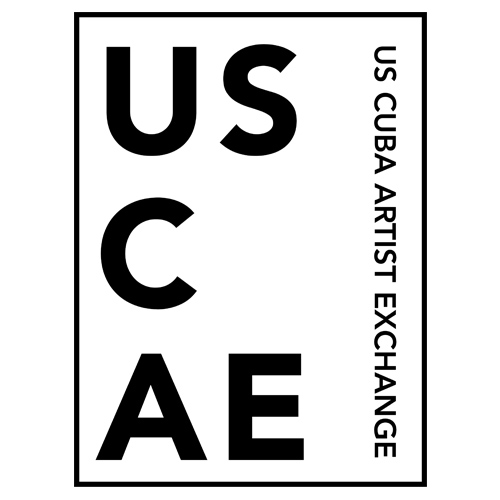MEET THE ARTIST : SARAH WHITE
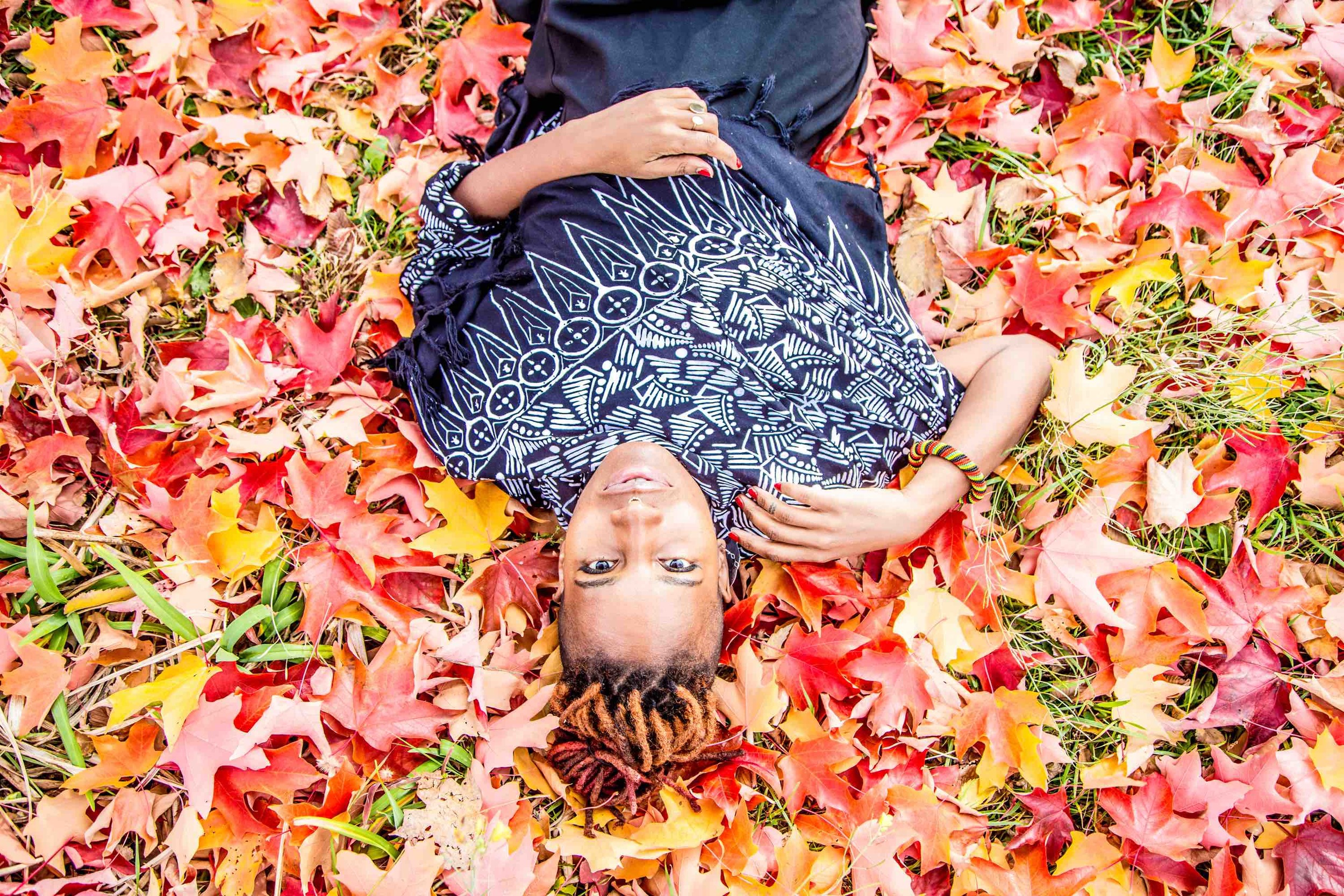
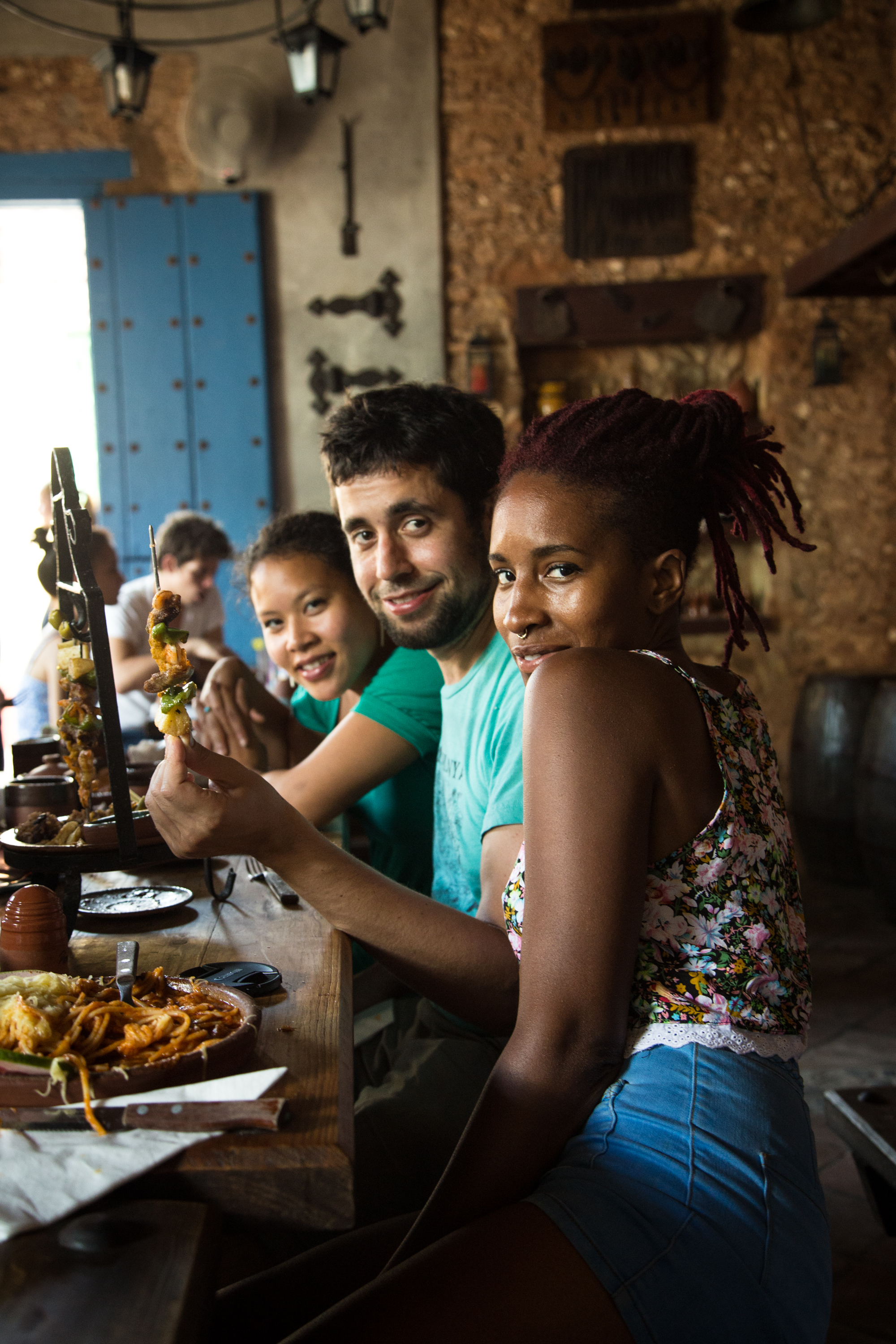
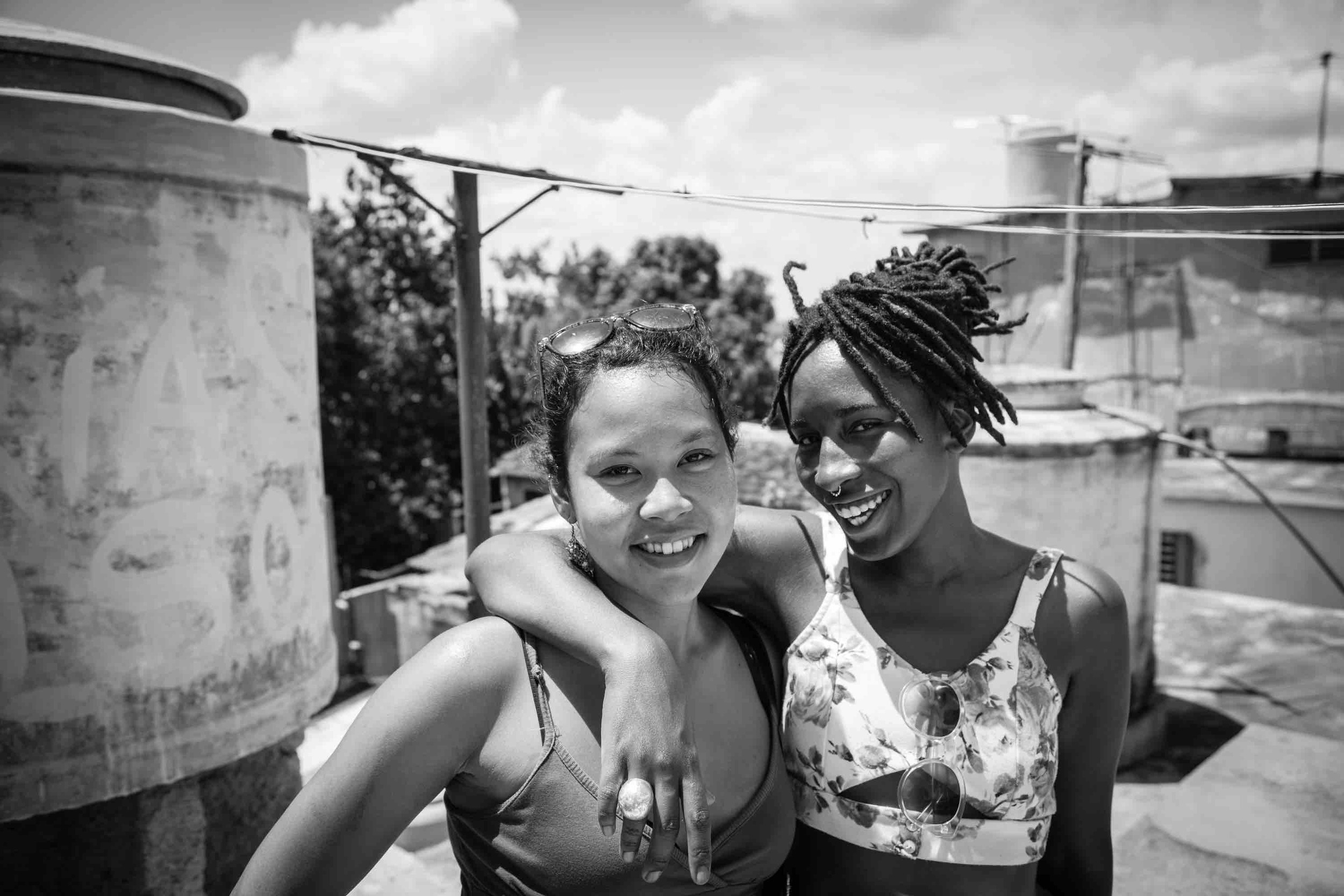
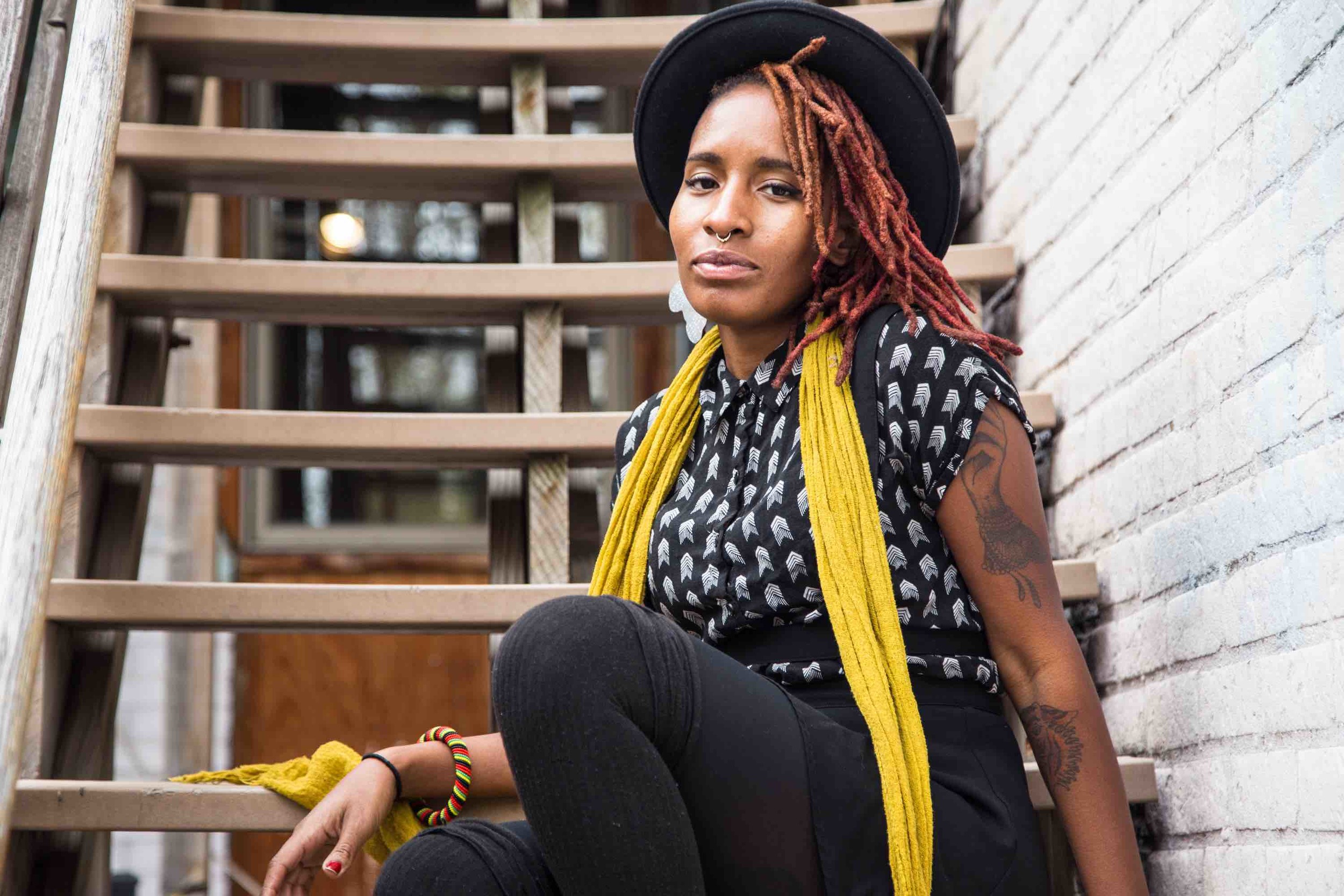
Why Cuba?
Cuba seemed impossible. I didn't really see myself leaving my kids and going to Cuba to explore and make music. It just kind of felt like a dream on my vision board. I've always been been so attracted to the music, art and culture of Cuba. As a photographer, it was a MUST. Once I began to help work and facilitate events with the USCAE, I knew I’d find myself on the island in one way or another, so I was able to make this dream, reality.
As an artist of many mediums, and as a member of USCAE, what expectations did you have about visiting/experiencing Cuba? Anything you wanted to accomplish while you were there?
I have to admit I was nervous. Would the Cubans like me? Would I be safe? Would I feel welcomed? Especially being an American and knowing the way many others outside of the States feel about us, I had no idea what to expect. Traveling in general is so unpredictable. But my heart said “yoooooo, just go!” so I did, with faith. I really wanted to go to Santiago and soak in part of that richness, walk through Havana, sing in the streets..dance..eat! But most of all, shoot photos EVERYWHERE! I really got to do most of the above, but sadly still didnt make it to Santiago. Next trip, it's a MUST!
What were 3 core take away experiences/values you had in Cuba that you can say you see/implement/or are conscious of in your everyday life now that your are back in the states?
Hmmm.. its interesting because if you had asked me that question a year ago, I think more of the core values would have stuck with me, while sadly some have faded back into routine.. But ill say one thing that has been a huge change is the way I live within my community. I make time and create spaces to be with people in different ways now. Like big dinners. Late night gatherings. Healing circles. Creative collaborations. I learned how important it is to connect and make time to be with people, where they are. Not everything needs to be business, sometimes we need to connect as humans! I also woke up to how much the media and social media pull us away from human interactions in a deeper way. I still use social media very heavily in my work and businesses for promotion and leverage, but yeah, I see it for what it is.
Also I learned to open up to a new kind of love. A new love of self. A new love of people. A new love of heart. It sounds cheesy but I really loved the people I met in Cuba. Right away they opened up their homes and hearts and my soul grew. I learned to be more present in those moments, and take time just to laugh and eat and talk vs my normal grind mode.

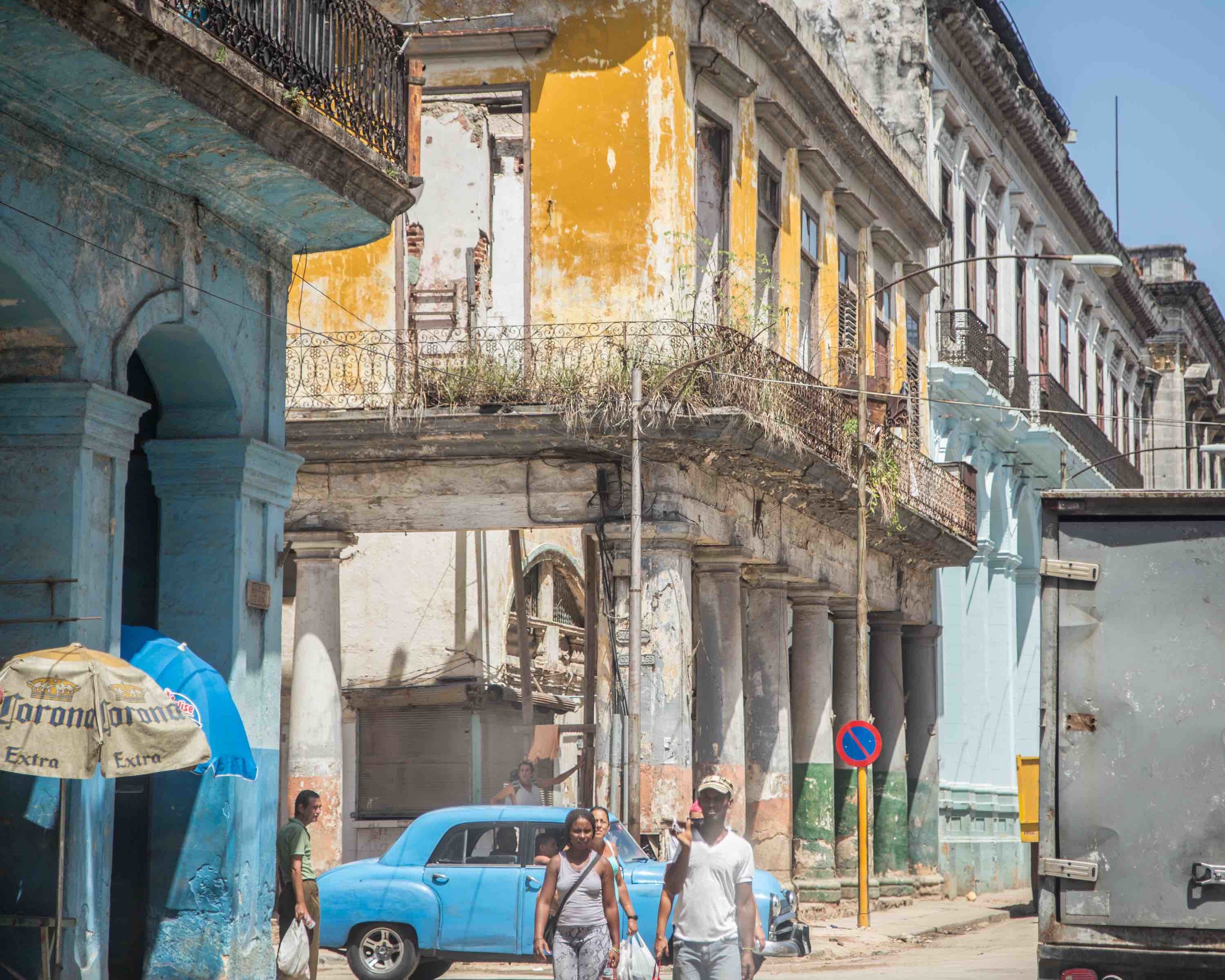
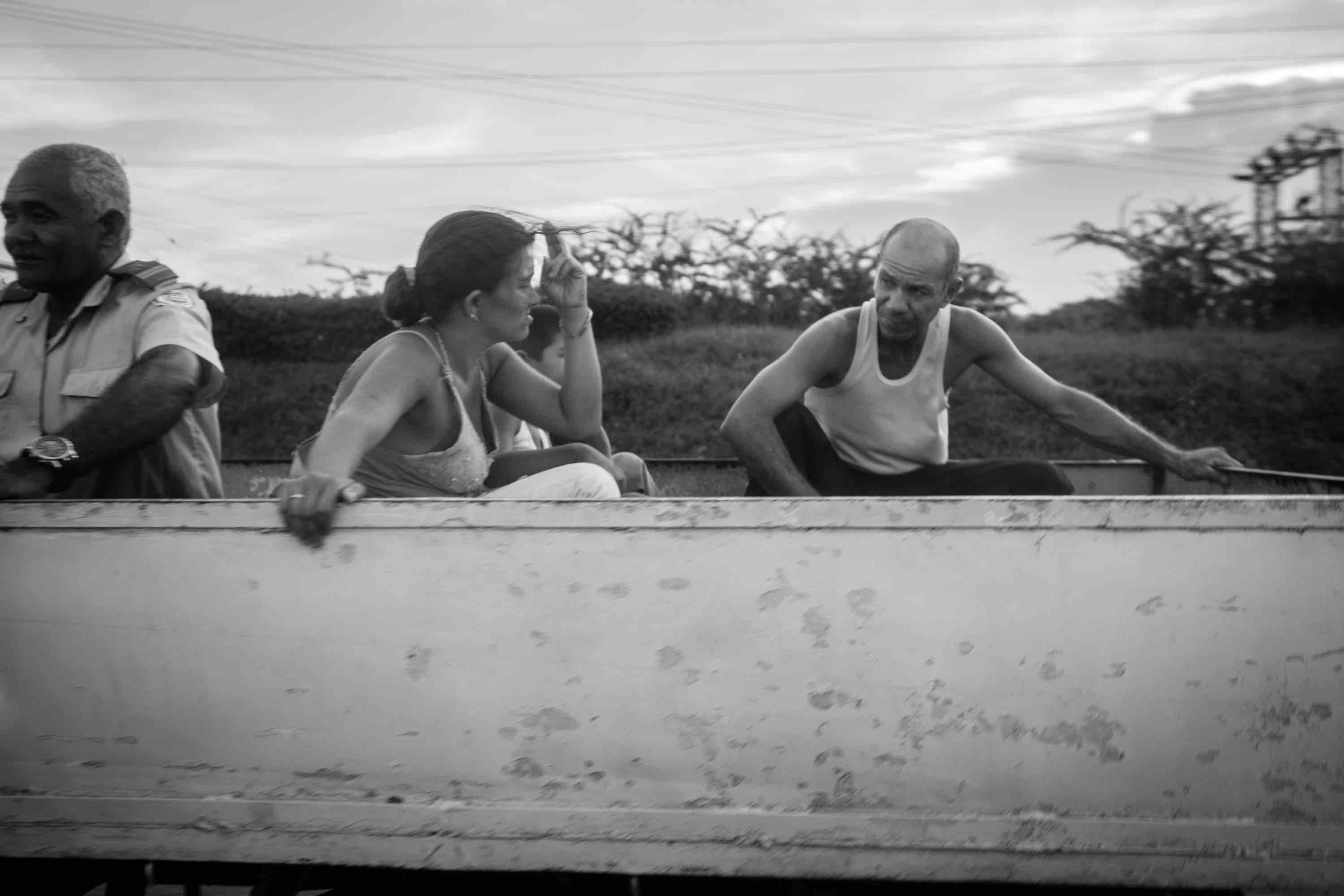



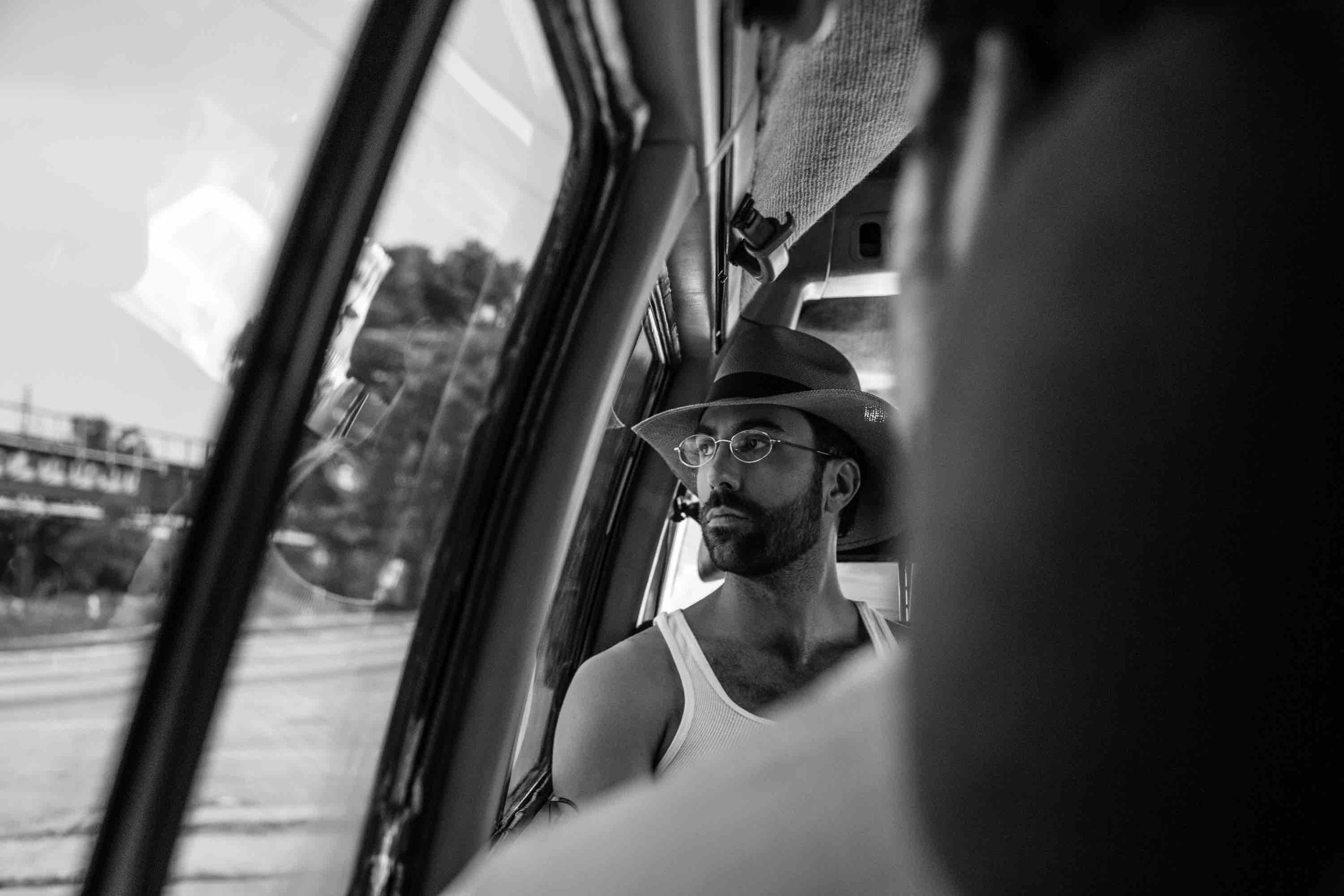
What did you feel about the differences with the way artists lived in Cuba vs the way artists live in Minneapolis?
I feel like I would need to spend more time there to really say what the exact differences are, because surprisingly, so many things are the same. Artists in Cuba are trying to express feeling of the heart just like artists in America. Artists in Cuba are trying to bring awareness to inequalities with race and government, just like artists in America. Artists in both places struggle with doubt, love, financial stress, roadblocks.. one thing that is very different, is the resources. We take so much for granted here. We have laptops. Internet. Fully stocked art supply stores. Home studios. Grants. I was blown away by the things that I saw Cubans make happen with so little resources. In some other ways, they have SO much more than us.
Did the Black community there feel different from the Black community you have experienced in the U.S.?
I feel like I want to spend more time there to better assess.. I have to make it to Santiago to be more submersed in it. I can say that in Havana, I remember a moment being in the studio and getting my hair faded outside in the front, and eating rice and beans feeling just like I was in Southside. The beats were sick! The brother doing my fade was VERY attractive! Kids were playing in streets… I felt home. Except the accents were strong and the spanish was so fast I had no idea what anyone was saying lol!!!
It felt very different and very all the same at the same time.
Really we all come from the same roots, so it’s nice to find eachother again in the united moments.
Was it hard to come back?
Yes. Oh, my.. I cried like a baby. I felt like I was leaving something that I had found there. I still don't know exactly what it was.. the connections? The experiences? Good friends? I was amazed that I felt so deeply connected after being there only 11 days, but I knew my life would never be the same. The world didn’t seem so large. The eyes and heart felt so awake. I also now know how much opportunity I was taking advantage, so I made steps to step up my pace in my business, art and career.
It was hard to come back, but my babies (Iza & Mica) were waiting for me, so the plane couldn't touch down fast enough. Those girls, make coming home magical! I only hope to bring them with me next time!
Anything else you want to mention about your experience?
I think it’s really beautiful that we in Minneapolis have the USCAE located in OUR city! There is so much that we can grow by learning how to see outside of our box and go explore and learn to love other cultures and ways of life. We need this to grow as humanity. We need to take a second off of the screen...off of the hamster wheel.. and see eachother. Laugh together. Love.
I became a family with the whole crew that I traveled with from Minneapolis to Cuba. I can honestly say I love them all. They are my family. And now I have family in Cuba!
View more of Sarah's photography: www.fotosforbarcelona.com
Listen to Sarah's music: https://soundcloud.com/sarah-white
MEET THE ARTISTS : MARIESA SUN-SAENZ
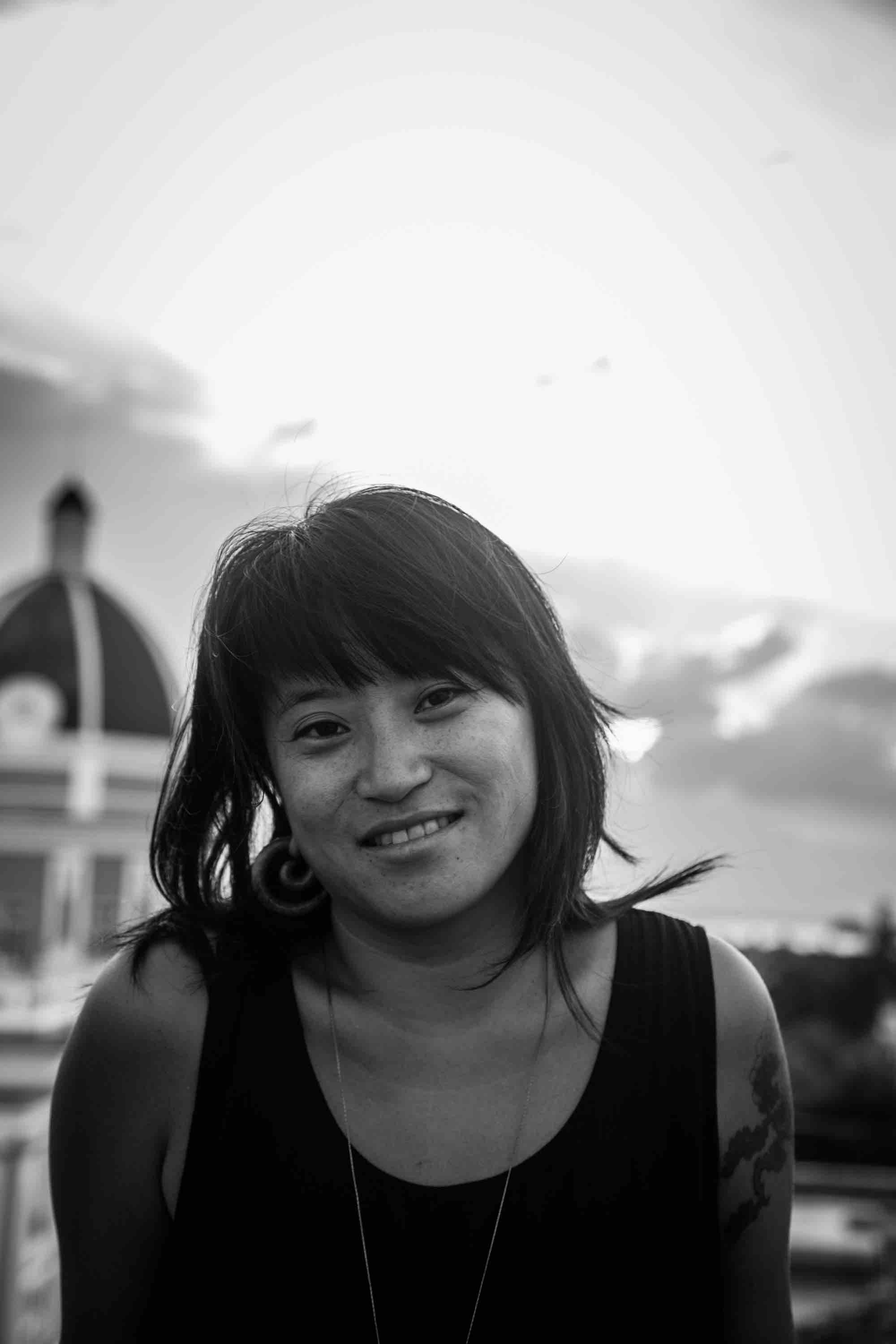
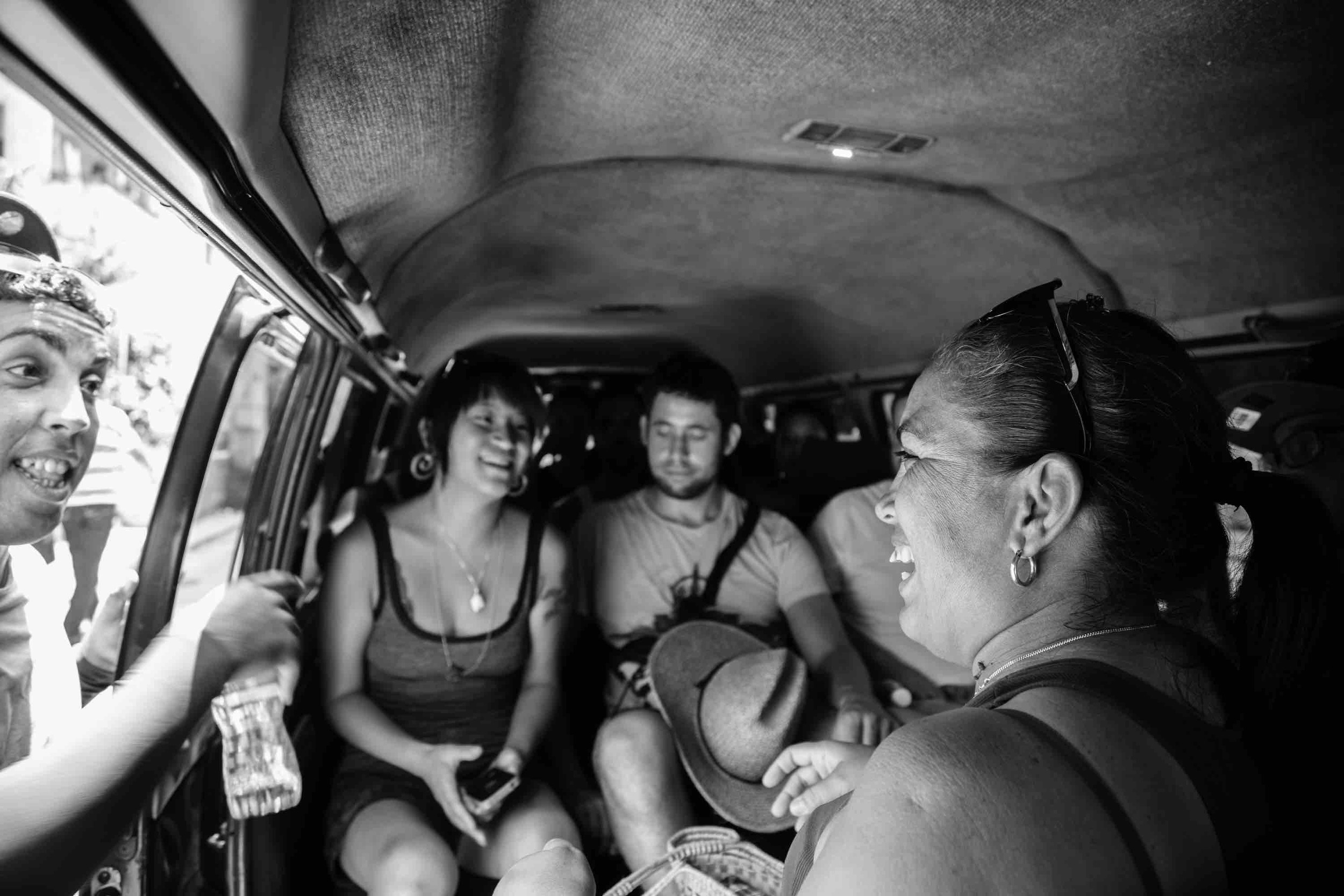
Photographs and interview by Sarah White:
Not only is Mariesa the founder and the face behind USCAE, but her passion towards creating more dialogue and more communication between the communities in Cuba and America, drive her to continually dig deeper and reflect on new ways to build a bridge.
She loves Cuba. The sounds, the smells, the culture... But even more, her love for the people and the way of life, not only helped produce a change within her own consciousness, but invited many of us within the community to ride along and take the journey. I was so blessed to experience Cuba as a part of one of the tours, so of course, I felt equally inspired to pick her brain more about how she found her love for the island!
Why Cuba? What called you?
I don't know what called me, but my mom invited me to go on a trip with my aunt in April 2012. At first, I almost said no! And then I thought 'well nobody gets to go to Cuba, and it's a sort of secret place full of music, and art, and culture..I might as well go!'
So I went, and as soon as I got there I felt like it was...I don't know... so...it's pretty romantic there! But, not romantic in a romance kind of way! Maybe it's like movie romantic because it seems like it's so old... You kind of feel like you can be somebody else there... You can be your real self and break of the persona of the person that you are in your daily life… that you have to keep up everyday. Maybe you can be more creative or you're more true self there. Or you can explore yourself at the very least!
Lasting connections from the first trip?
It was a weird tour for me because it was with a company that takes retired people on trips around the world, like dream trips… so everywhere I went people were like 'what are you doing on this tour!!!?'
I met a couple special people while I was there. One of them was Mily, the co-founder of USCAE. She was the Cuban guide. The other was the American guide, Leo. He was younger than me and showed me a lot of the Cuban nightlife, and that was something that probably changed my experience because none of the retired people wanted to do that, of course. So to have someone who was willing to show me a part of Cuba that wasn't really part of the tour was really special and made a big impact for me with my background in nightlife and the social scene. It helped me to see what real local Cubans experience in their daily life. I got to talk to a lot of people. Europeans, Cubans... just about life. That was really interesting and fun.
So that's how you met Mily!? What connected you two?
First of all, Mily is a total hustler (laughs). She speaks perfect english, she is the top tour guide in Havana Tour, which basically means in the Country. She is really knowledgable and she really cares about the experience that the tourist are having. She personally cares, not just for work. I feel like she is the perfect example of the type of hospitality that Cubans want to provide for you if you come to the country.
What feelings did you leave with as you left Cuba after your first time exploring?
Actually, on the plane, I remember feeling really sad when I left the island. Like i was missing something... I just remember thinking that I left something there. Like part of my soul. And, then when I went back more times, I felt like I found myself. There’s something about Cuba that made me learn about myself.
What are the first 5 words that come to your head when you think about Cuba? Go!
Free, Creative, Fighting (not fighting with somebody, but like everything in Cuba is a fight!), Letting go of control, Connection!
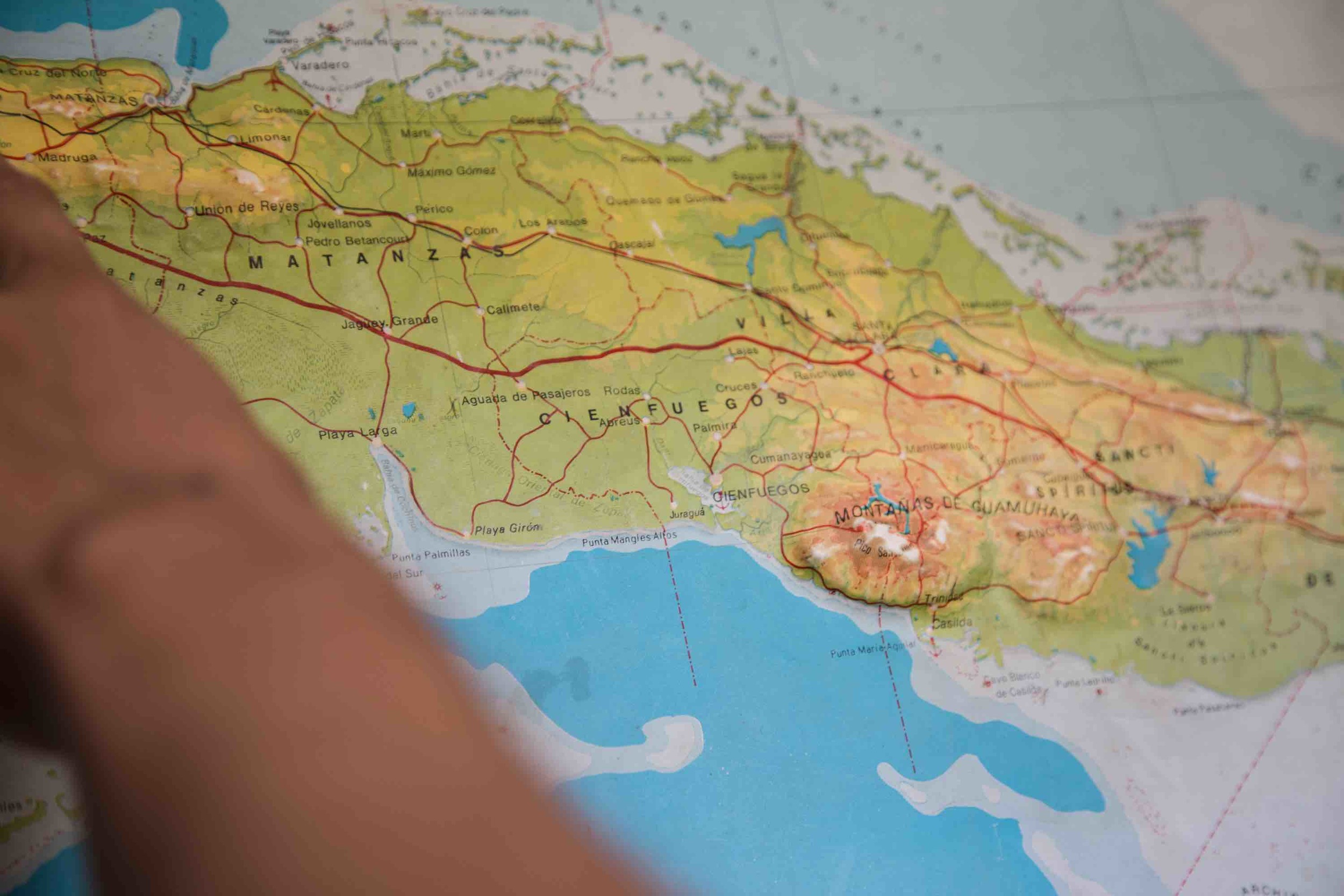
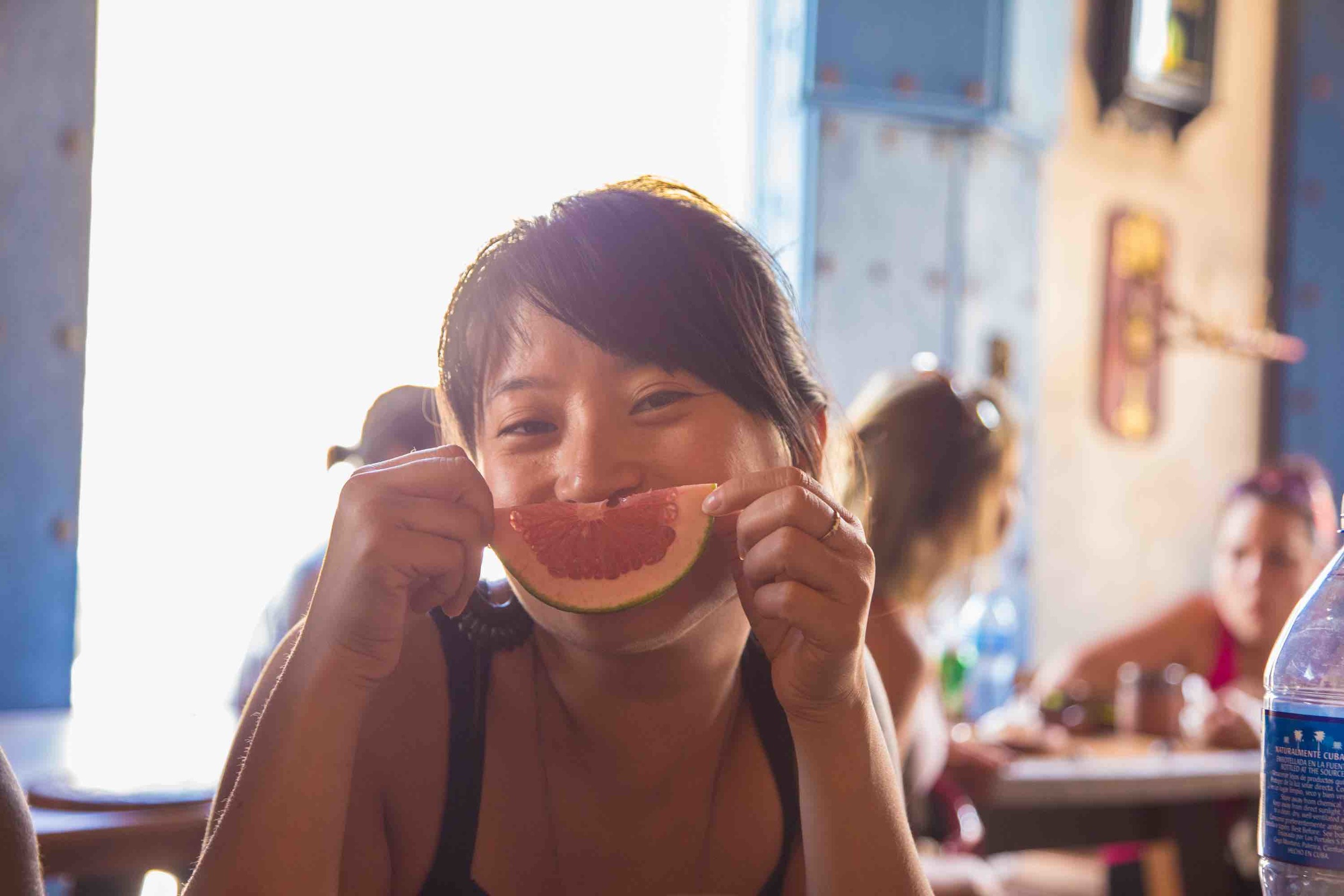
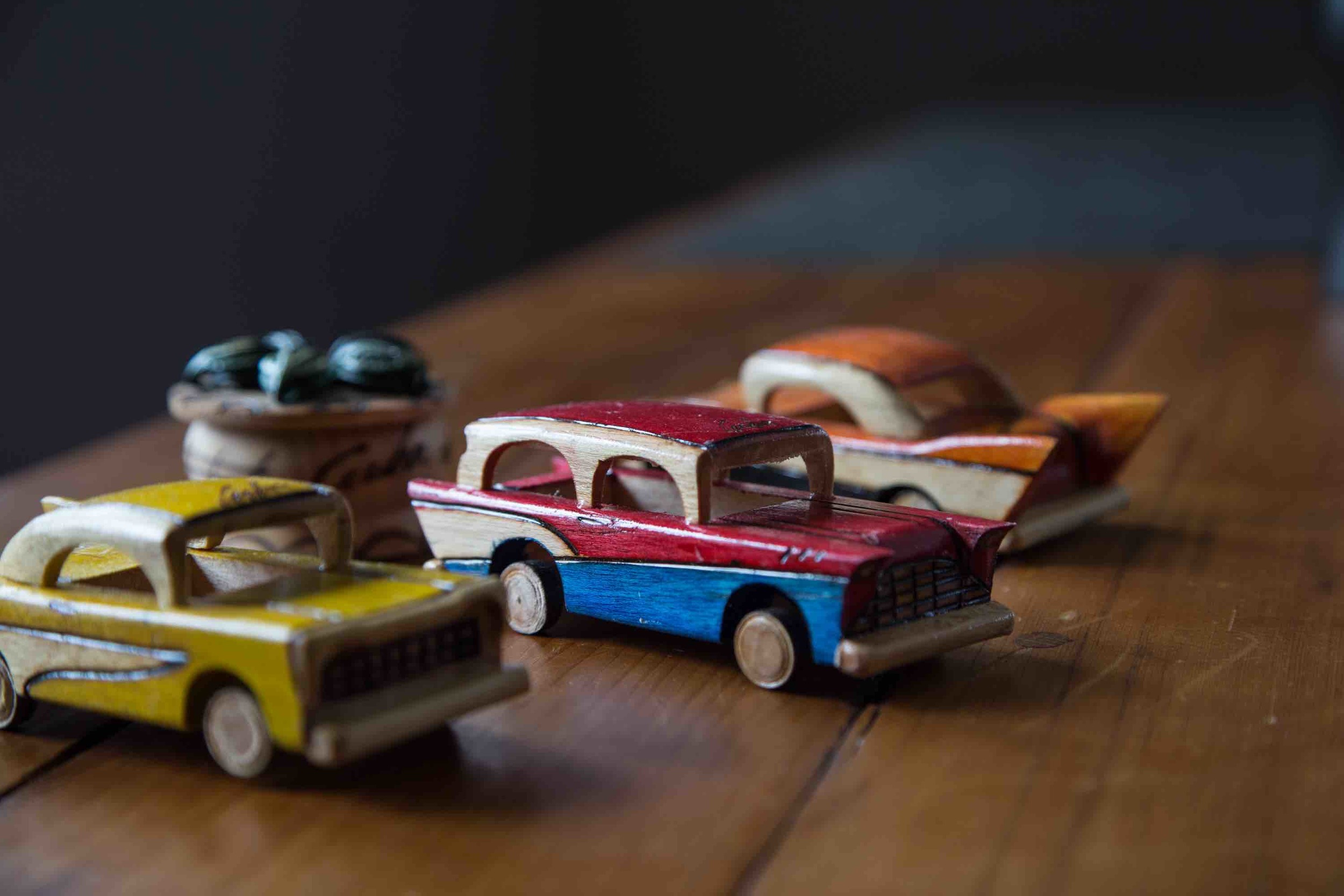
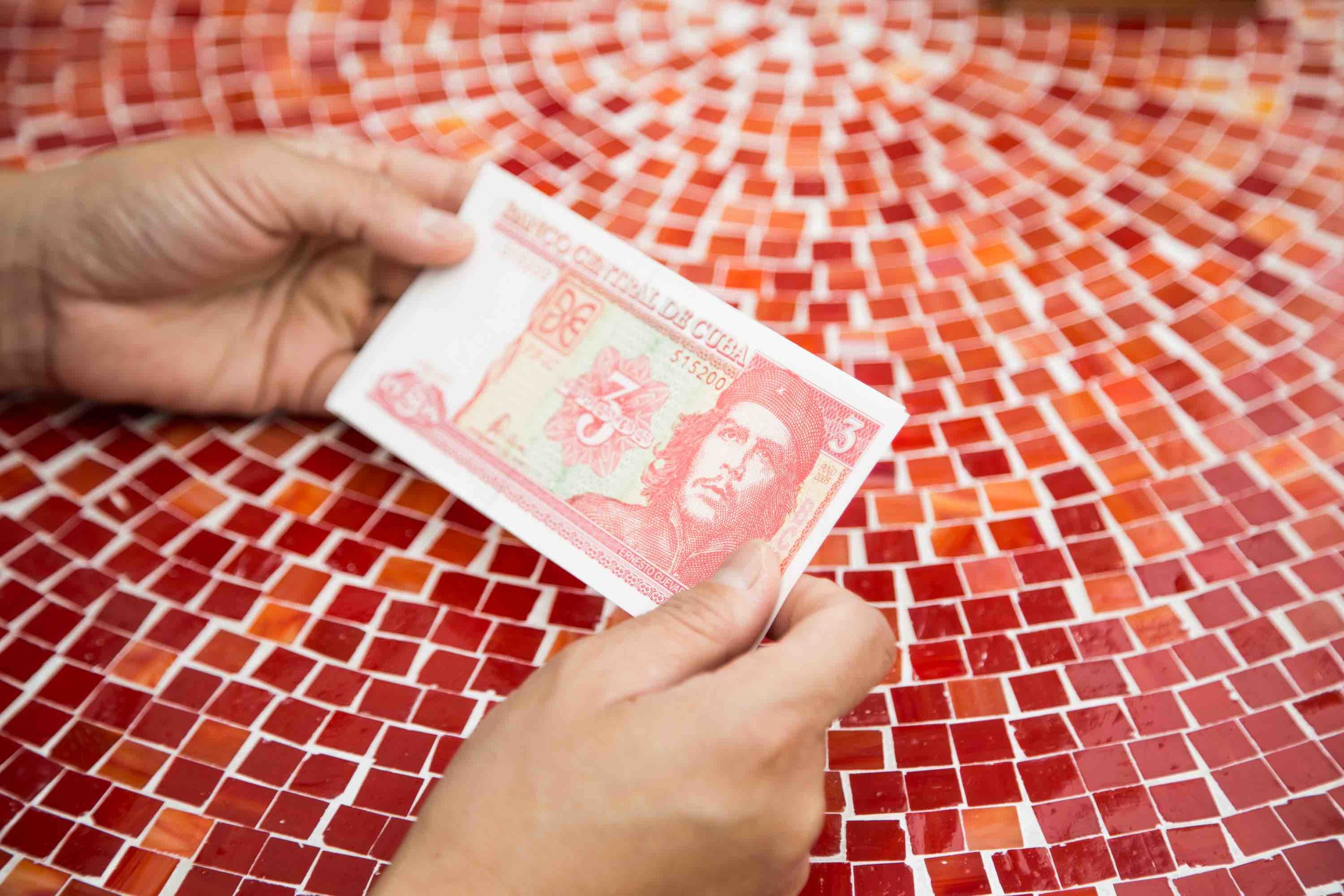
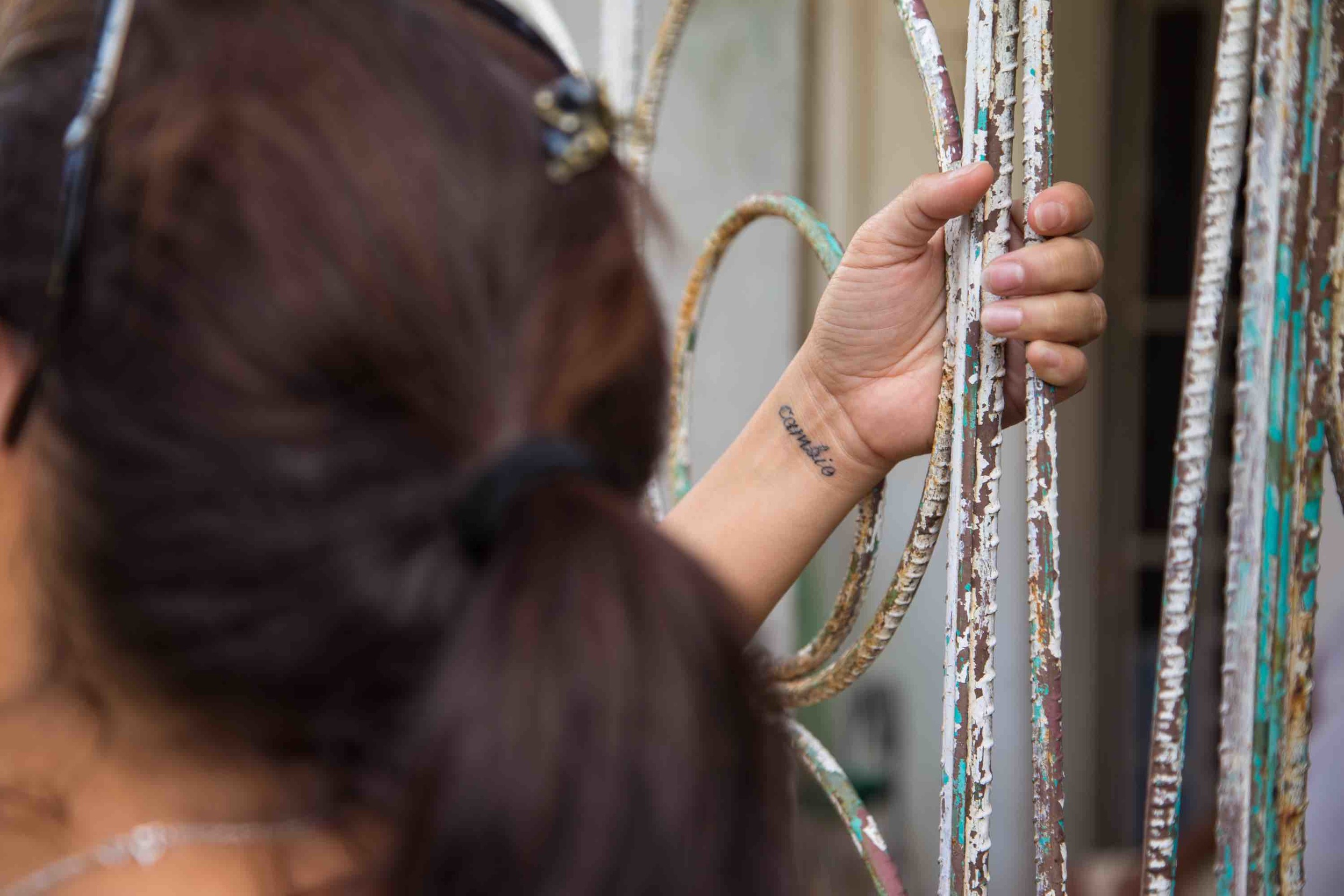
USCAE, why?
Well, Mily and I had this talk about how Cuba was on the brink of something changing. Well, it has been, and all the Cubans knew it, but at the time they didn't know what it was going to be. She was telling me how the parents were always doing everything they can to prepare their kids for who-knows-what! For anything and everything. Trying to get their kid just that far ahead to be prepared for whatever was to come… One thing I had been doing before I went to Cuba was thinking about how I could help adults and kids learn about digital media literacy and internet literacy. Because, without that, what do we have? And the people that don't have those skills are not going to be able to be successful in life, within our society.
I was talking to her (Mily) about that and she agreed, “Thats our problem! If our kids could get ahead by learning these things, then if they were to go out into the world, or if something changed as a country and we got more access to the internet or the outside world, our kids would need to know that! But they know nothing about it..we don't have that here..”.
So we talked about starting a technology lab, for not only kids but also artist, and also teaching entrepreneurs how to budget etc.
So how did that turn into the USCAE?
When I started going back, I realized that it’s a lot more complicated than just starting a technology lab or bringing people down there to teach people how to use computers. One of the best ways to work with Cuba and bring resources down, is through culture, music and art. Since I have a background in audio production, I went down there trying to record musicians.
The first couple times I went back, I just looked for bands to record. I’d give them money for their time, and give them their music on a flashdrive, and then move on to the next city… I wanted to make a compilation and eventually bring some of the artists to the U.S. So, that's how the idea of the exchange happened.
Then we realized we need to do more than just record musicians, we needed to think about what would benefit the Americans and the Cubans. And, a lot of what benefited the Cubans was being able to have access to coming to the U.S., and meeting the Americans both in Cuba and the U.S. because they don't really know how we feel about them... just like we don't really know how they feel about us.
They welcomed us with open arms, but until you go down there and experience it, you are not sure, you know?
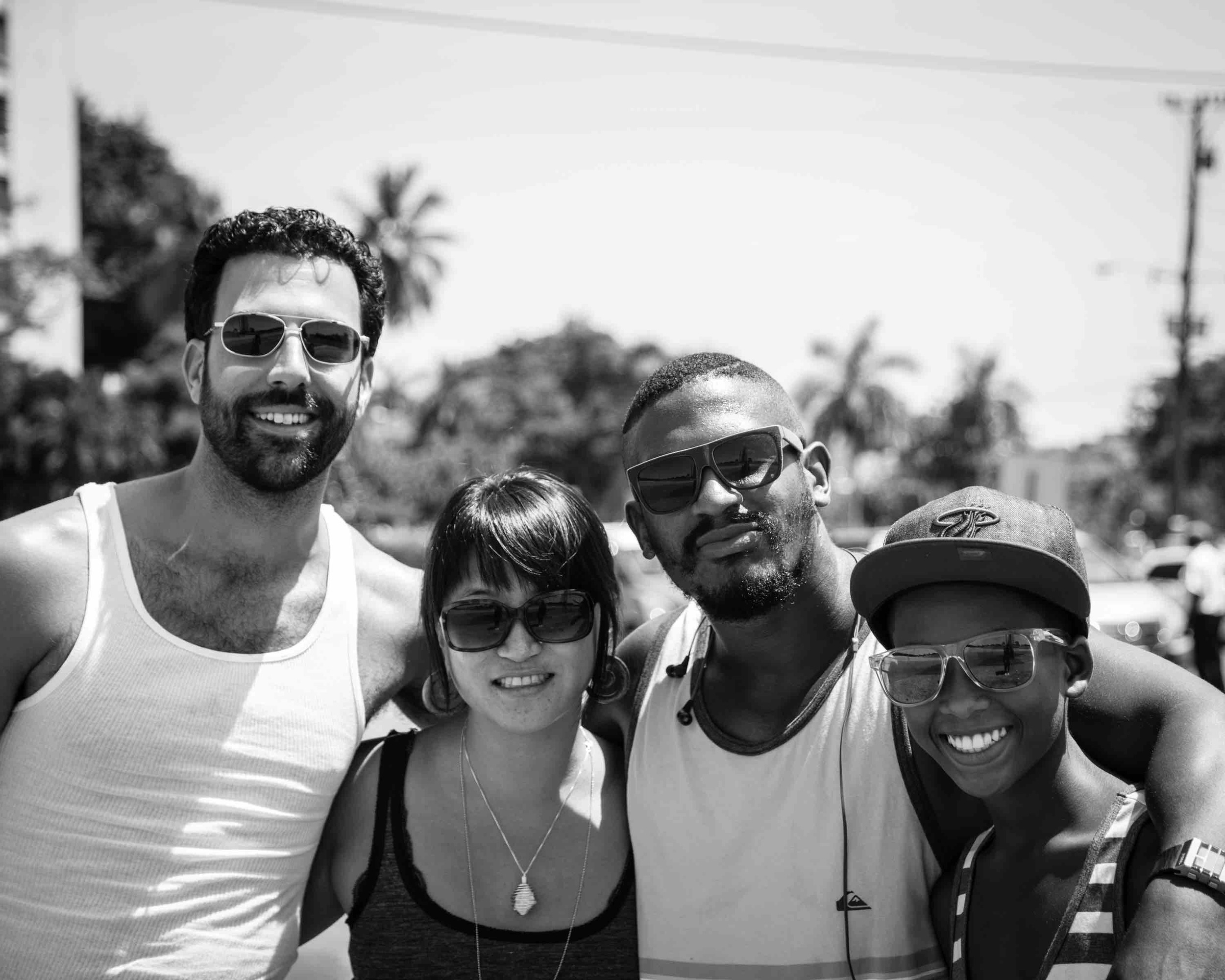
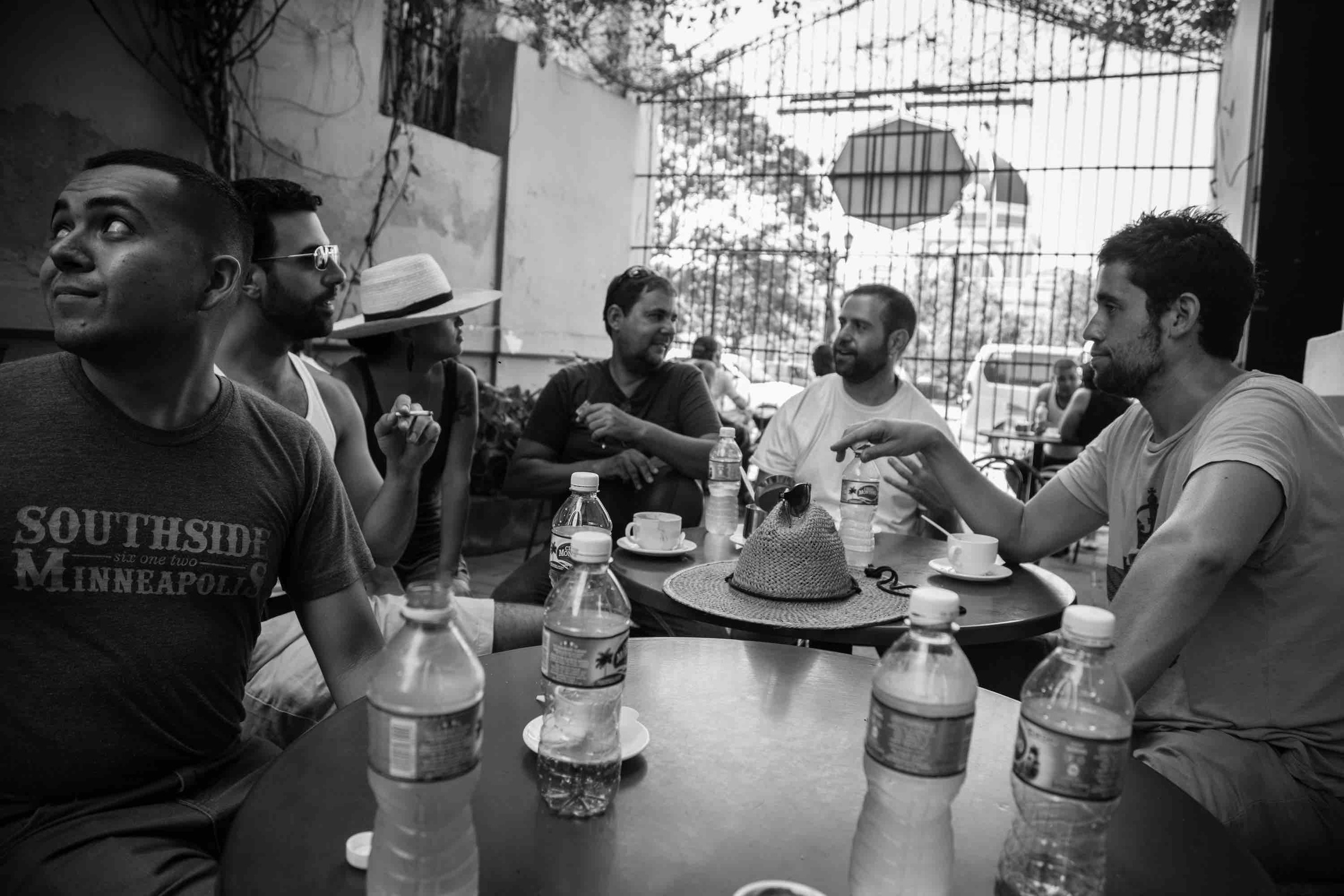
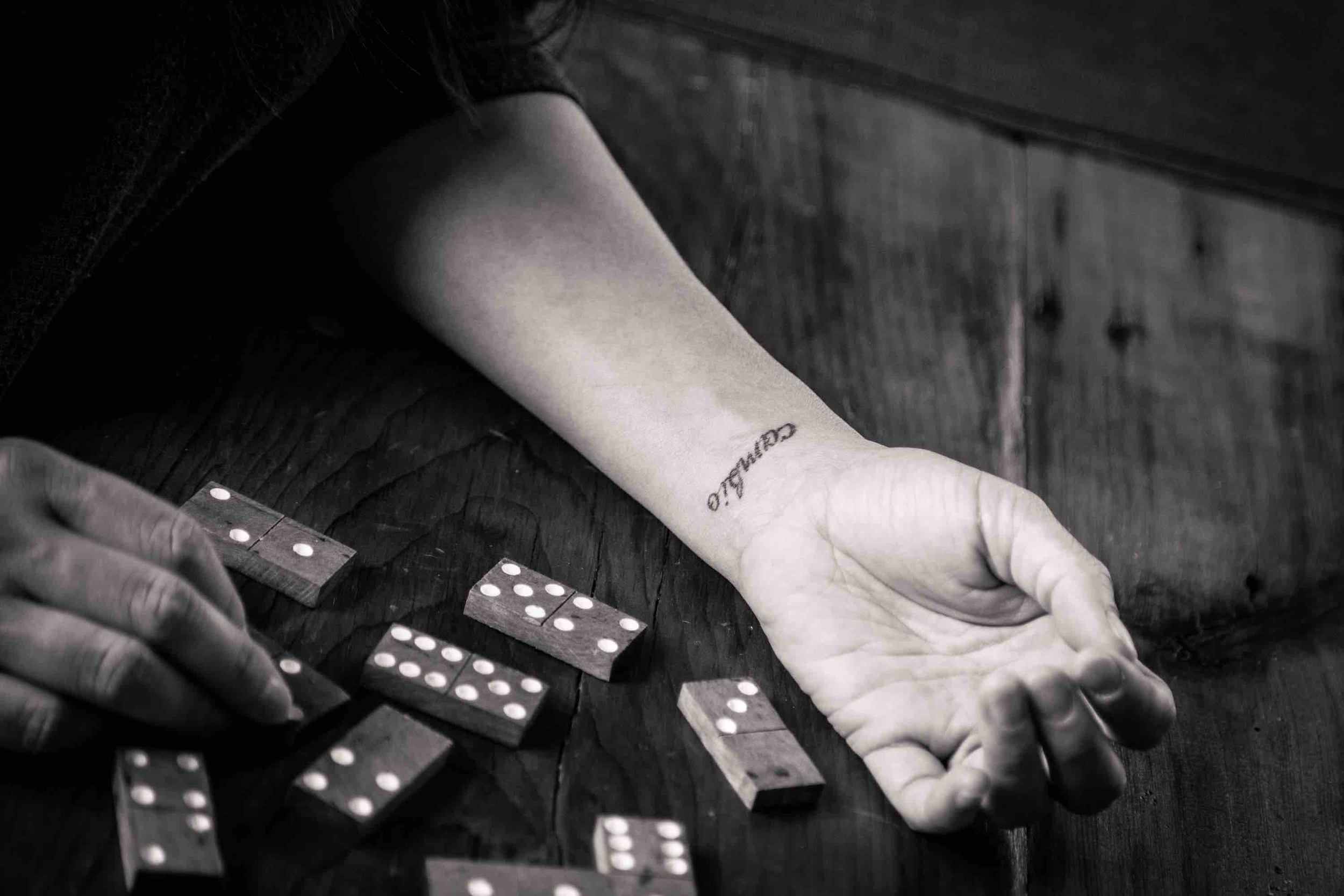
Notice any huge differences in the way we live here vs there?
One thing that is really different is time. The way that we use our time. The way that we view our time. Here it's like a rat race and we are always going from one thing to the next thing, always in a hurry, and that affects communication. In Cuba, they're in a hurry but in a completely different way... In a hurry to try to find the next resource that they can to get extra food, or the thing that they have been looking for that they couldn't find due to slim resources, but they are not in a hurry with time the way that we are because they have all the time in the world. They just don't have all the resources. Because of that, the way they work as artists on collaborations and timelines and communication around all that is different as well.
Tell us a funny story from a recent exchange…
I'm not sure if this is funny, I was mortified and excited all at the same time!
One time we took them to the Seward Co-op, it was the first time Nelson had ever been out of the country so he had never seen a real grocery store before! His eyes were super BIG, and he just kept touching all the food and looking at me like “why?!” He just kept swearing, like “SHIT! What?!”. He was flustered, to say the least, that there was so much of everything! And all of the produce looks so beautiful there, and it's lit properly... I definitely remember that moment.
What does USCAE need to keep doing the work?
The biggest thing USCAE needs aside from individual donors/funding, is exposure to what we are doing and why it's important. It's hard to find the people out there that are interested in Cuba and interested in arts and culture. It’s not like we are saving starving babies or dying animals but we have created what we like to call a bridge between the U.S. and Cuban artists communities that we work with, and that bridge has created rich experiences that have changed the lives of both the Cubans and Americans involved.
Last question, for now... What lifelong changes have you seen in lives because of USCAE?
Every Cuban that gets to be involved in one of our projects, gets their life changed. They dont have the opportunities and a lot of the artists that we are working with are undiscovered artist. There is opportunity in Cuba, and especially in Havana, but a lot of those opportunities go to well known artists or well connected artist i.e. artists with money or good connections..
Many of the artists we work with are not from Havana, so they are fighting for any kind of a chance, whatever that might be.
I think being able to connect gives them hope. They are not greedy and would never take, but to get to come to the U.S. or get exposure or equipment or make these new connections help to inspire them to push further.
Check out more of Sarah's photography: www.fotosforbarcelona.com
Listen to Sarah's music: https://soundcloud.com/sarah-white
MEET THE ARTIST : MOISES WHITTAKER ALVAREZ
When we arrived at the home and studio of MOISES WHITTAKER ALVAREZ in Havana, he welcomed us with open arms. We literally walked through his living room and kitchen to get the recording studio and immediately felt at home. Even though the conditions felt different, the love of music immediately made us all connected and we got right to work. “Mo” is so dedicated to his craft and it's so inspiring to be in the presence of such a talented, hungry, hard working producer, it was an honor to pick his brain about his first trip to the United States...
What did you think about the life of artists in America before you came here with USCAE?
I used to think that here it was a little bit harder than in Cuba, because everything is controlled by the industry. In Cuba, we don’t have industry, so we are more free to make the music. America has to play with the same rules as the market.. its like you can not go against the way.
So now that you have collaborated with American artists both in Cuba and the U.S., has any of that idea changed for you?
Something changed. Changed the fact that I see people, I meet people here that have a lot of talent but they don't fight strong enough to make the people see them. I’m not talking about a record label, I’m talking about do what you really want to do! You don’t need a record label!
Here, it’s like everything.Whatever you need it’s there.
In Cuba, we don’t have anything.. and we are making noise.
You’ve got everything.. Why aren’t you making noise?
They say “I dont have a contract!”, you don’t need a contract! You just need to know what you want to do and do it. That’s what I see here.
What do you feel people can do to open there’s eyes?
People need to wake up. I believe if people go out of this country and make trips... for example go to Cuba and see how it is for us.. They will see that they don’t need to wait for anybody. They need to just get up and start fighting.
What did you think when you first got here? What was the most shocking thing?
The most shocking.. (laughs).. It was how big everything is here. It’s a super big country. Everything is big… like OVER BIG! Even the food..everything is super big. Why did you give me so much food? I don't need so much food. Why is the bread so big? That was shocking because I was never a hungry person with no money to buy food, but i've never seen so much food in my life! Here there are too many options for everything. If you want bread, there is 100 kinds of bread, like WTF? I only need bread! I don’t need so many kinds of bread, one is ok. I just need food. That’s they way we see it, to us it’s simple. Here even to buy bread is complicated.
Favorite 3 things in America so far?
Chicken. Icecream. Cheesecake.
ALL FOOD? Out of all of your experiences that was the best?
(laughs) Yeah.
What kind of chicken?
Fried Chicken. The chicken here is VERY good! People said chicken in America is really bad, but I think it’s very very good!
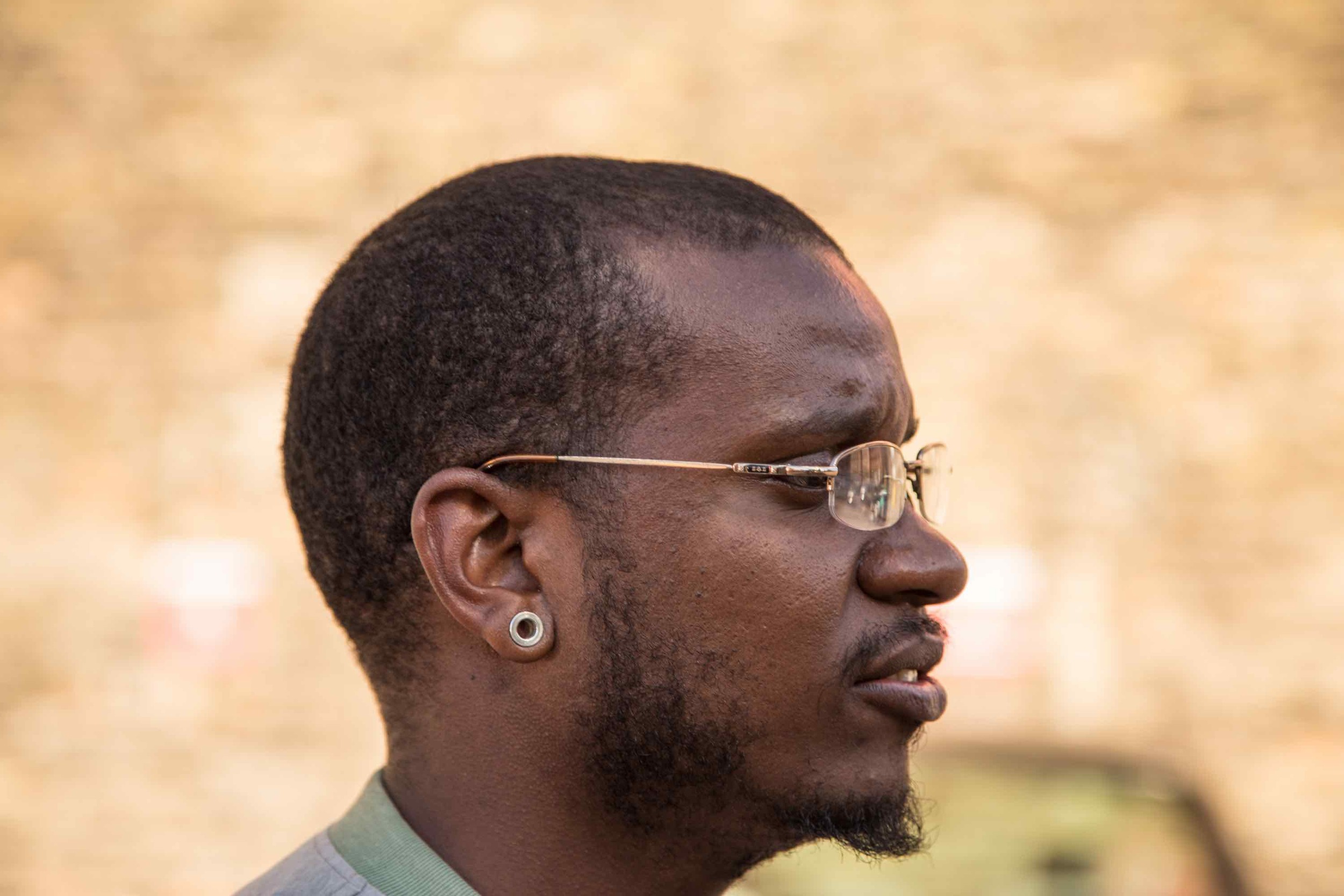
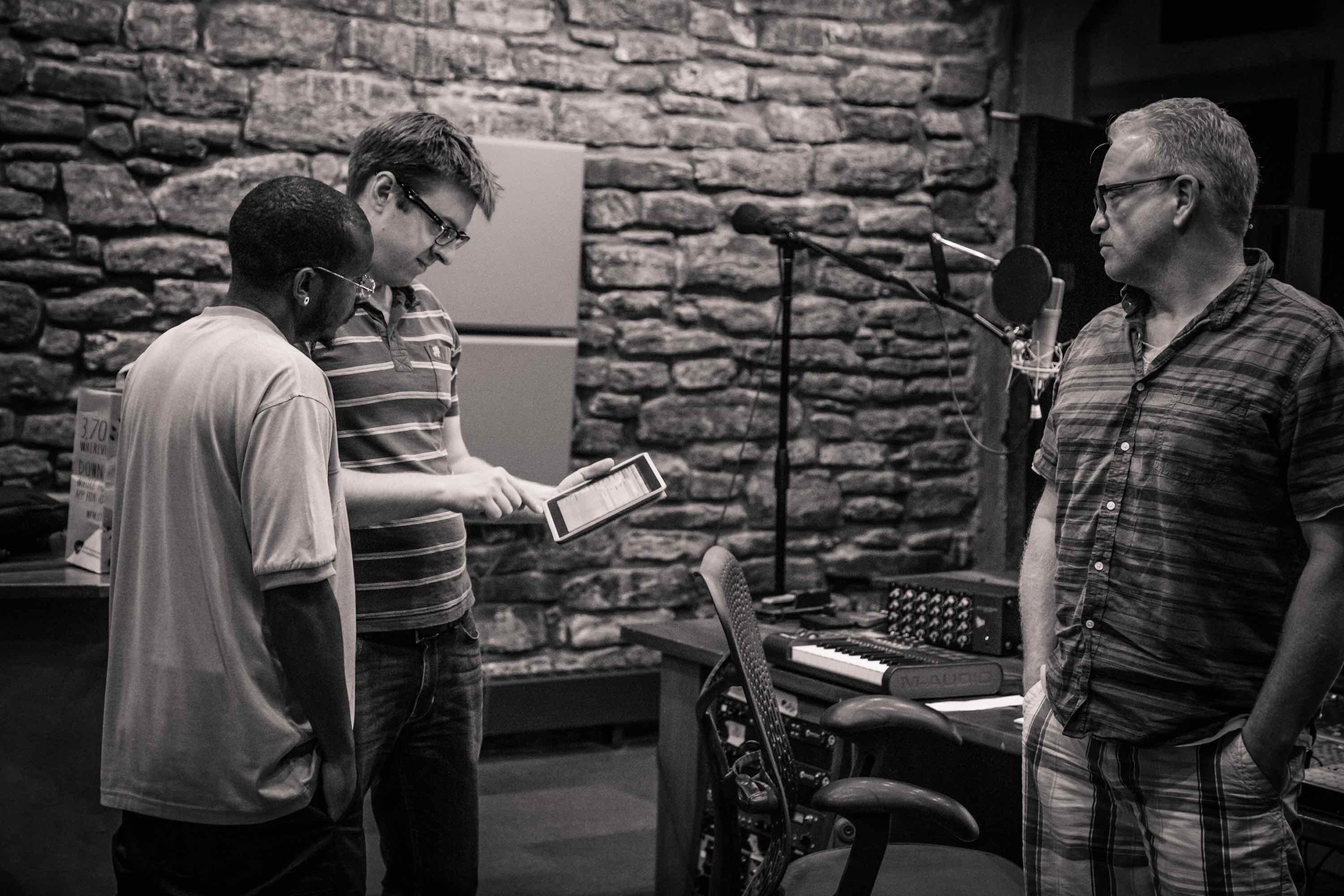
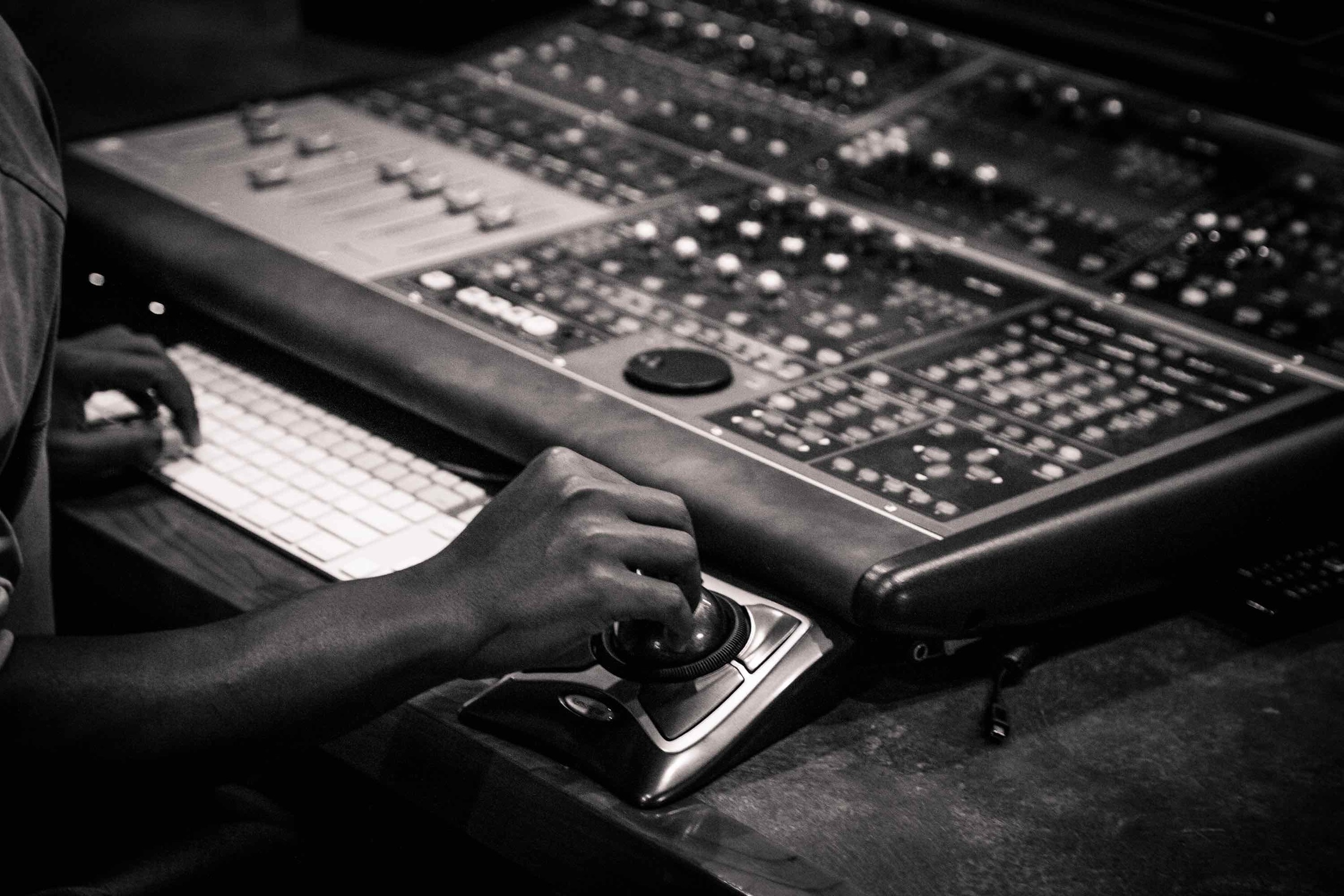
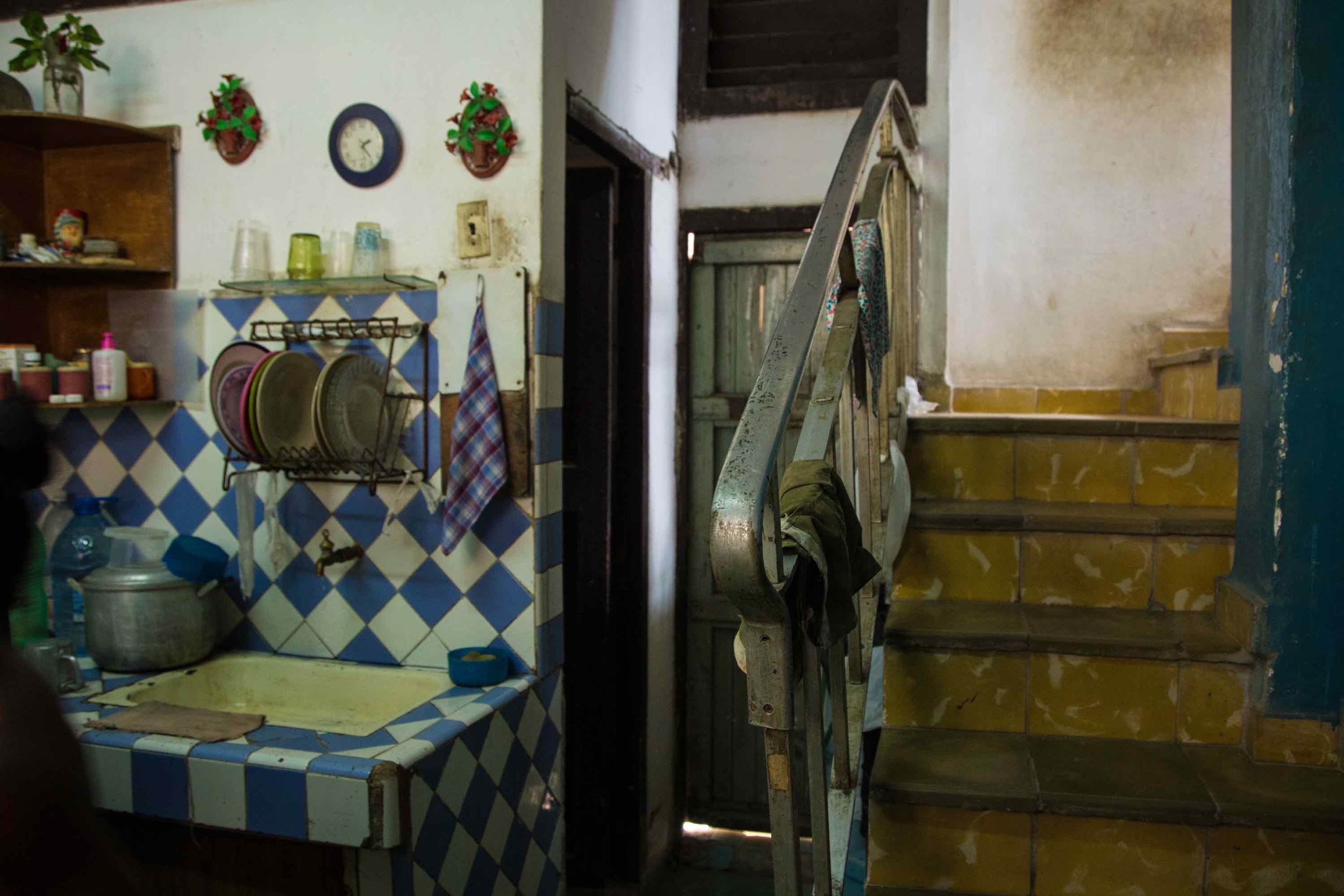
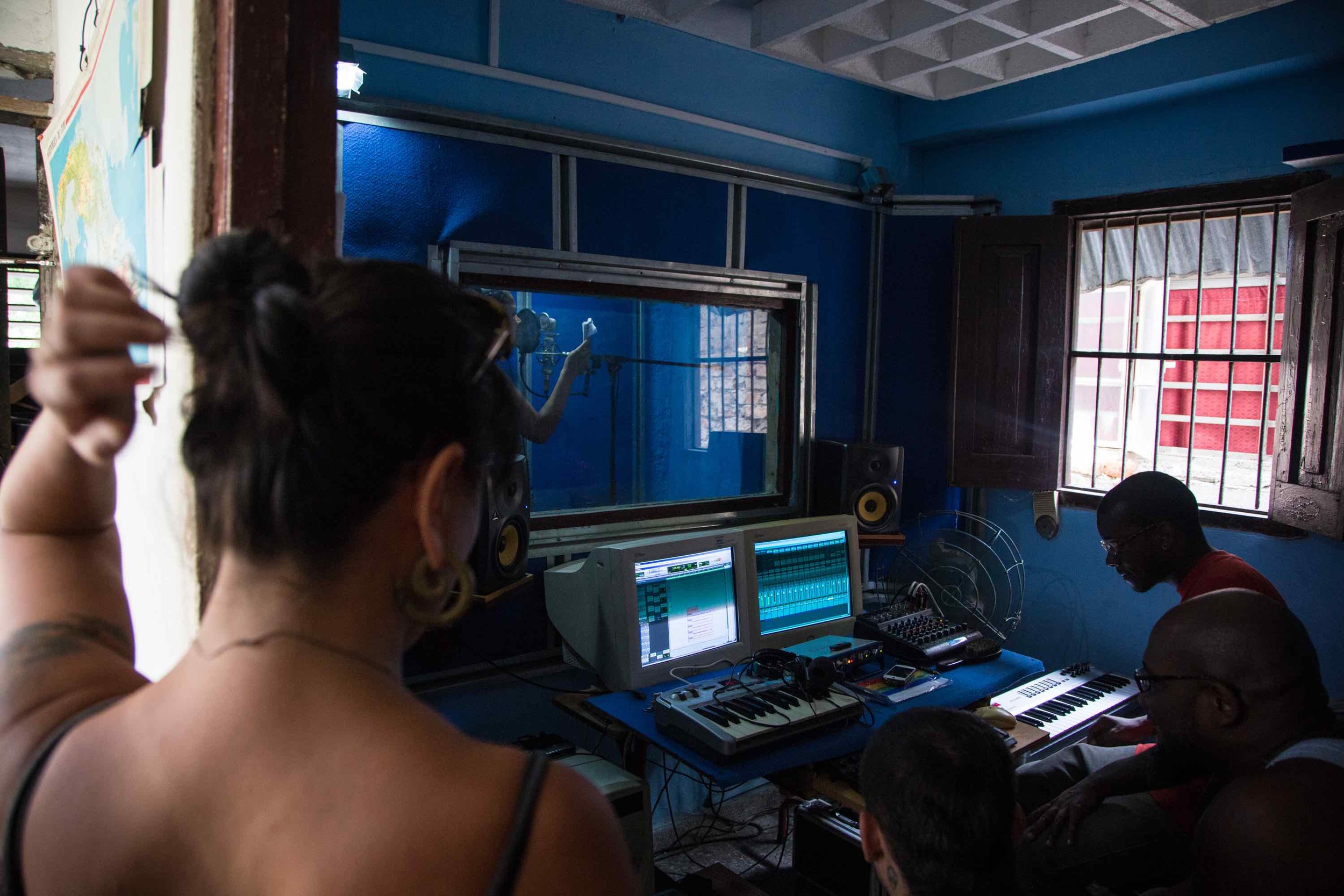
PHOTOGRAPHS BY SARAH WHITE
What about in the (recording) studios? Any differences? (let’s try this again)
Here there are a lot of good studios. In Cuba we just have 2. I have had the opportunity to work in the biggest studios in Cuba, and now I see the studios here, and honestly we are not so far (behind). The only problem is that most of the of the people in Cuba don’t have money to pay to work in the big studio. Its super expensive for a Cuban. Actually I believe it’s expensive for an american artist or someone from other country around the world. They are very good studios with a lot of the latest equipment. The problem is the engineers. In Cuba we do not have a school where you learn Sound Engineering, so most of the people who work in that place, don't know what they are doing. Don't know how. Here people study, people know what they are doing. And when they have doubts, they have places or people or internet they can ask and get an answer. In Cuba, we don’t have that. In Cuba, all you have is your consistency. You try and try and try and try until you get it. Because nobody is going to teach you and you can't find the information anywhere. That's how we learn in Cuba. Try and try until you make it.
What are you taking back with you?
Knowledge. I learned a lot of things here. I'm not afraid to ask, so when I go to some place and I see something that I want to know, I ask. What is that? How does it work? Teach me! I'm like that. That's they way I am. I came here to learn and that's the best for me, because I learned a lot of things… About the culture here, about the way the people live here, and specifically the way the people work in the music here. So I am satisfied.
What can we do as artists here in the U.S. and artists in Cuba to make sure we continue this collaboration?
In my opinion, we need to work harder. It's not going to be easy… It’s not fast. If you want to get something done well, you need to spend time and pay the price. And the price is sacrifice. You need to make sacrifice to get what you want. That's the way I see it. We need to work harder, because it's not going to get any easier.
Anything else you want to add?
I have to say thanks to USCAE because they gave me the opportunity to come to the U.S. and know a lot of people and learn a lot of things... and that's not something that happens to me a lot.
I’m that kind of person that life has been a little bit hard with me so..I never expect that good things happen to me. I know that if I want something good to happen, I have to fight for it. USCAE gave me another perspective like.. good things can happen to you too!
And I have to say thanks for that.
MEET THE ARTIST : TONY SCHREINER
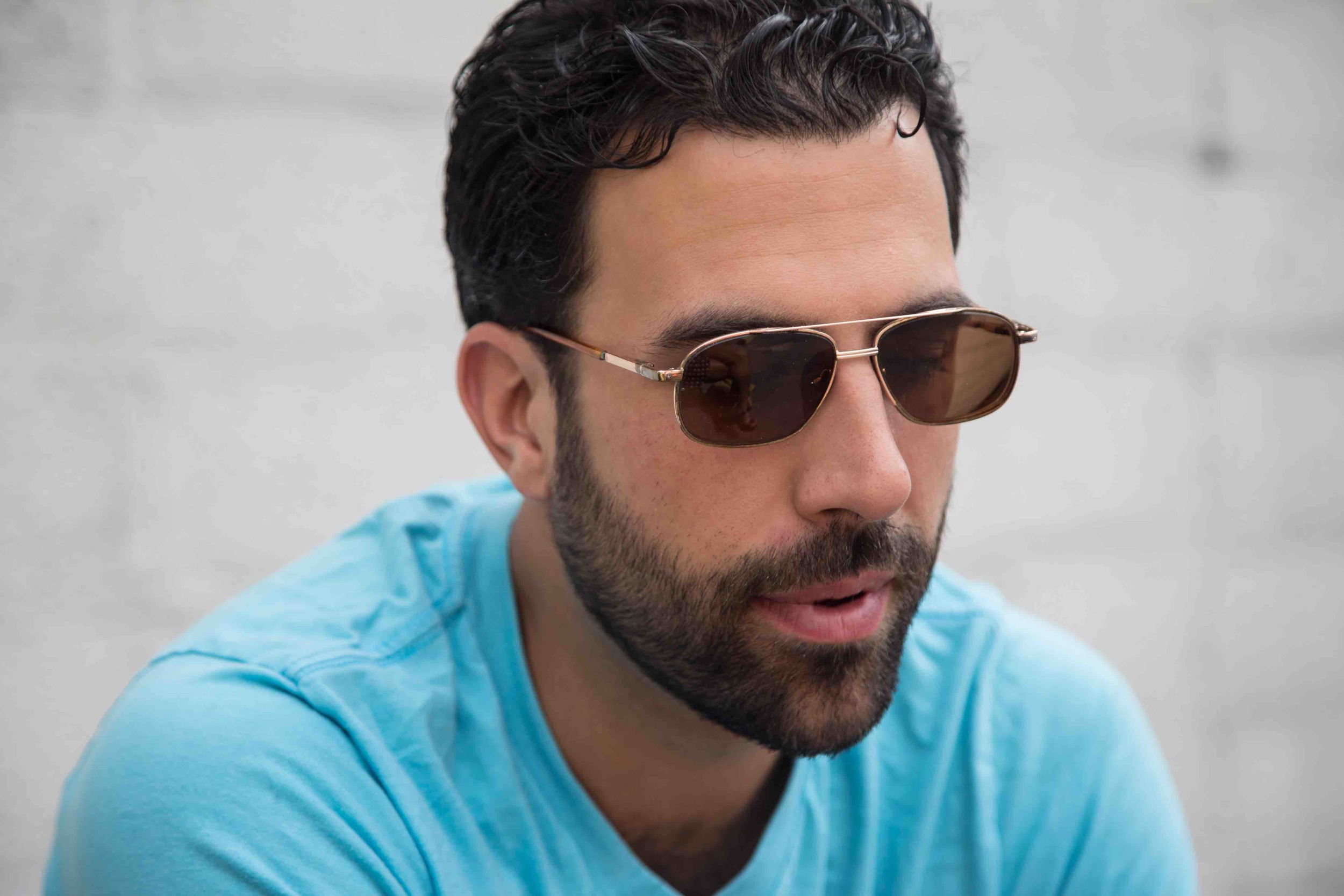
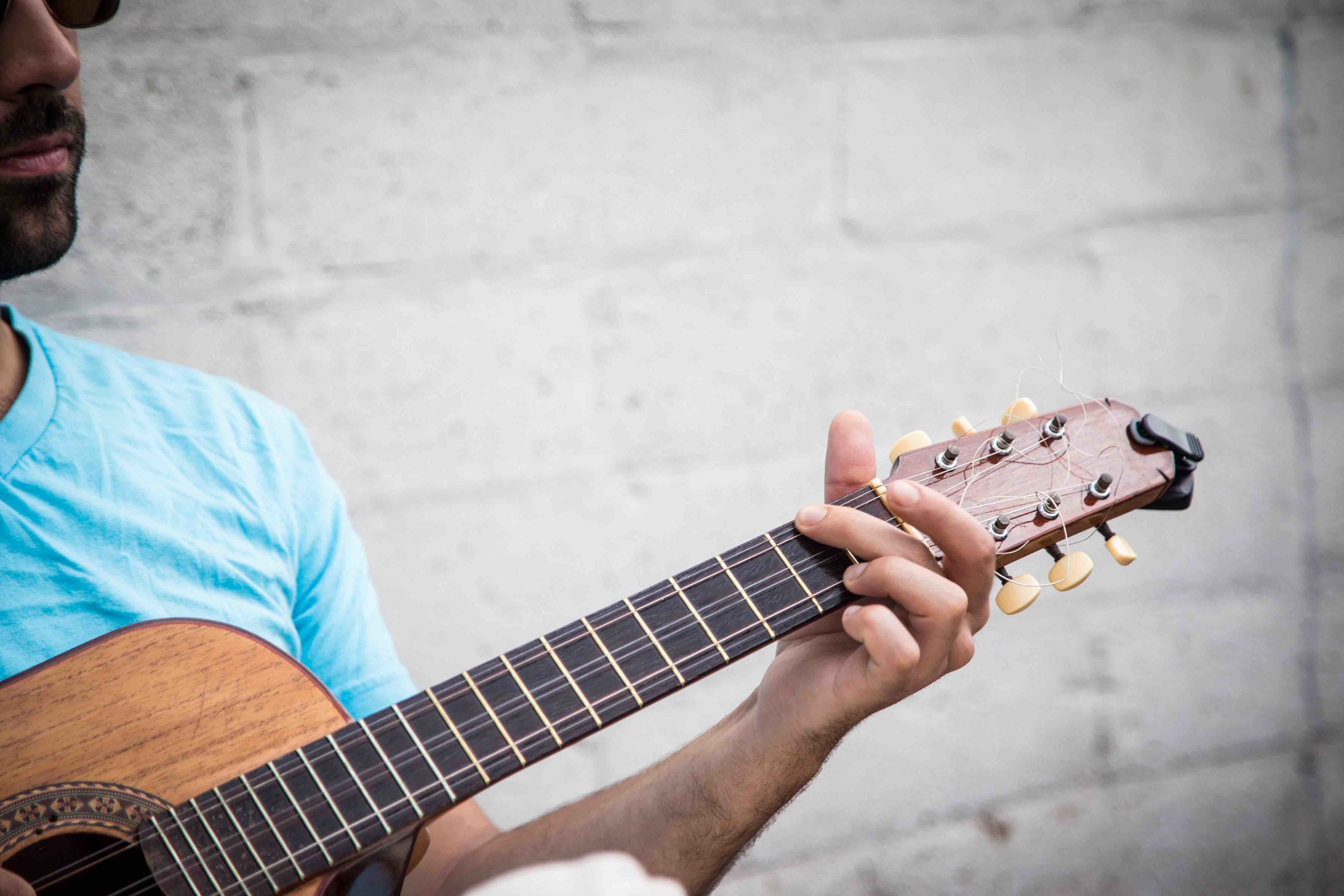





PHOTOGRAPHS BY SARAH WHITE
Tony is one of the most passionate musicheads I know. I mean, you can literally feel his honest excitement and love for his craft and the cultures that shape the sound. I was blessed to be able to be a part of the same tour that led Tony on his path to discovery of Cuban music and a new outlook on life in general. The long lasting residue and sense of longing for a more community based lifestyle, gave Tony even more to bring back into the community in Minneapolis and beyond. This dream come reality not only fueled the flame, but also built long lasting friendships.
Why Cuba?
Basically I heard cuban music for the first time when I was about 18 years old. I heard it at a friends house. Ever since then it just struck me like crazy. It was like a ton of bricks hit me upside the head! I was like “what is this?!” “who is this!?”... I found out the script, got the cd, the discography of what he was playing, researched it.. then bought all his cds...It took me several years of just familiarizing myself with the artists, music, culture. After doing some research and finding some Cubans in town that live here in Minneapolis to study different various instruments under. That lead me to realize that I really wanted to go! I NEEDED to find a way to go! I knew that if I did, I wanted to go for a while, try to be there substantially.
What lead you to Mantanzas?
The reason we went to Matanzas was because Chini who dances and teaches dance here in Minneapolis is from Matanzas. Matanzas in traditionally a very african district and they have upheld the traditions of Rumba, which is percussion and voice and dance. It’s like the epicenter there. I knew since I had a contact and someone with family still there, I had to go. It was beautiful! The music and the culture and the people were so unbelievably nice. It was so incredible. Kids on the street could play Rumba SUPER advanced!
The crowning moment, we got to take a private conga lesson with someone who plays with Los Muñequitos de Matanzas which is like the best, longest running Rumba group from Cuba!
We spent the whole day together… it was fantastic.
What changed in your life after your experience in Cuba?
After going there I felt, again, even more connected with the music and the culture I had always been drawn to. After feeling like I had really gotten close with a few people from Cuba, even though I was only there for 11 days, it felt like such a substantial friendship with people and the experiences I had basically reaffirmed that I am on the right path with my life. It reaffirmed that the dreams that I have are achievable and attainable. Even if I get down on myself I feel like it sounds utopian to be playing really cool music with great people in the sun and being healthy…I saw that. Overall, I just saw how beautiful and happy and healthy everyone seemed to be!
It reaffirmed that its just about your community, your family, your creativity and working together... Actually knowing your neighbors, being a part of your community and supporting each other.


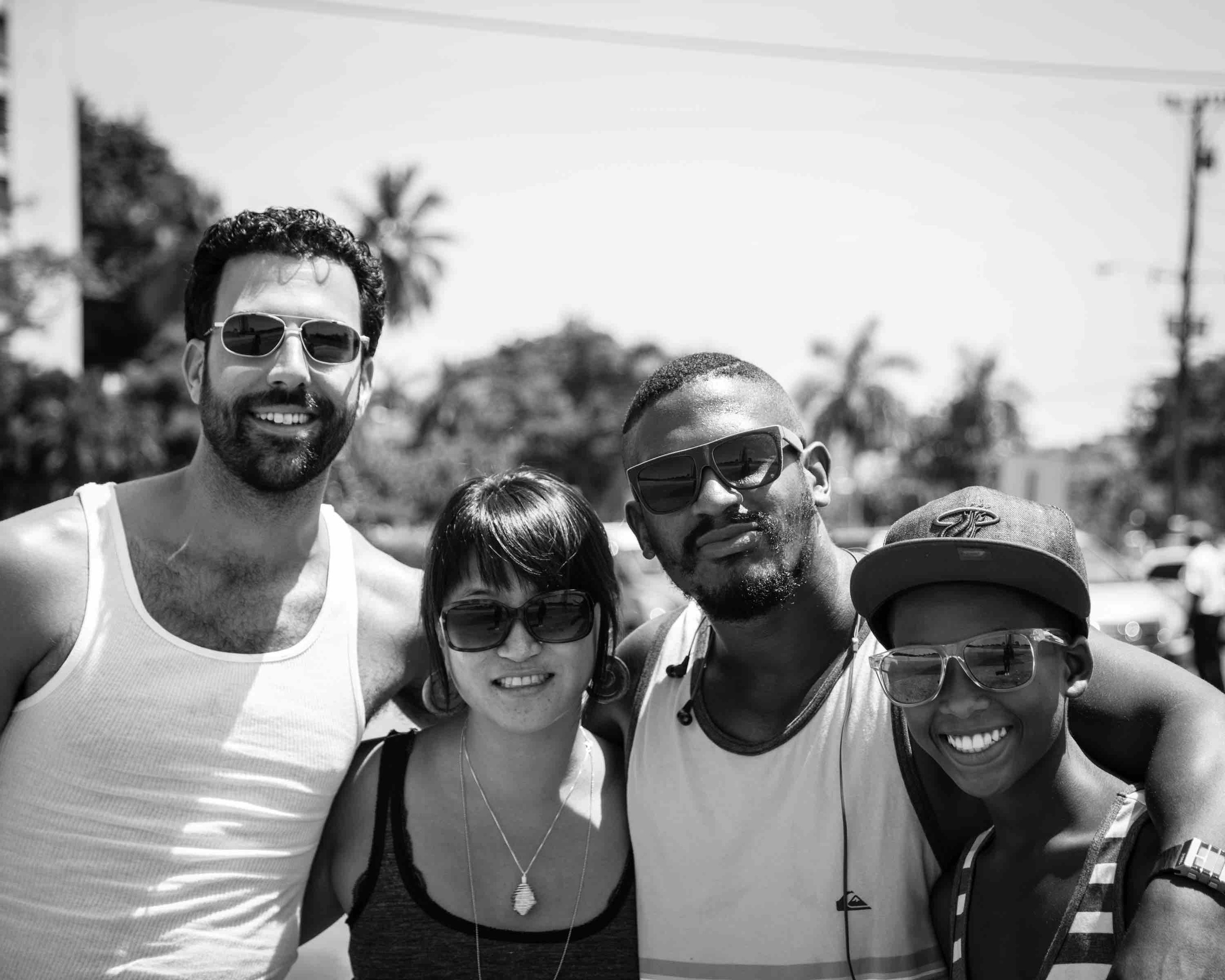
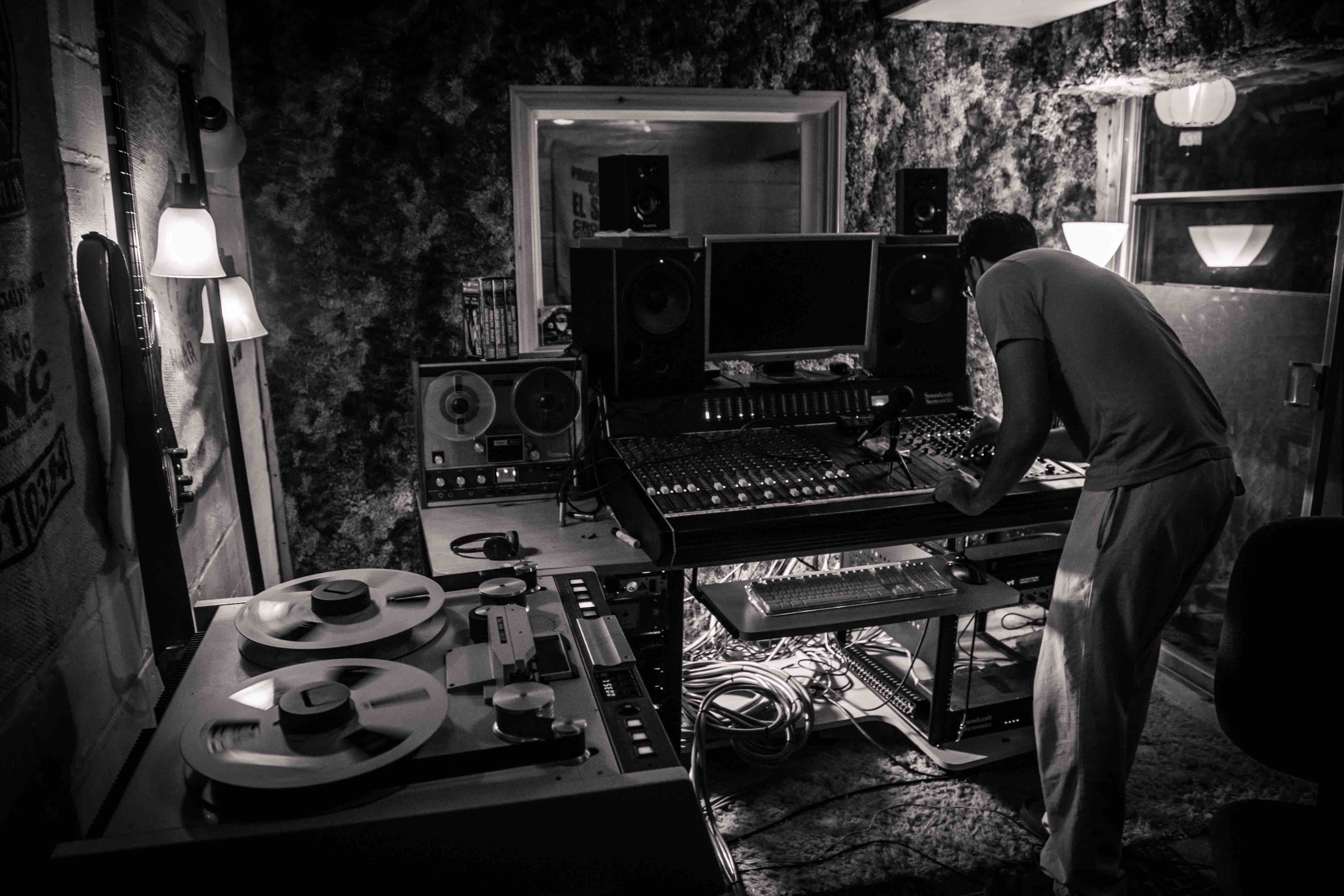
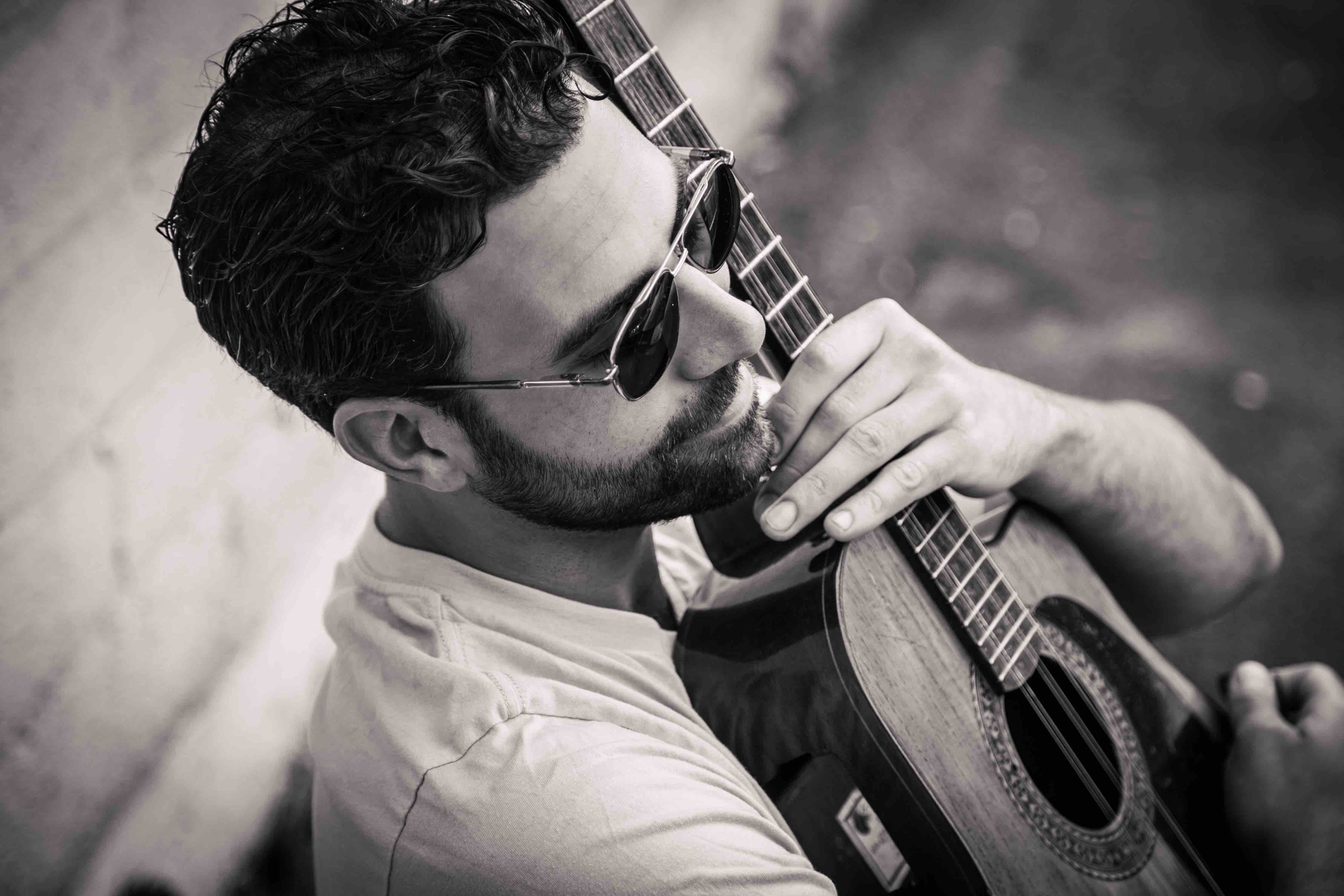


PHOTOGRAPHS BY SARAH WHITE
What surprised you on your journey or return?
The major thing I was bombarded with, was how much advertising and pop culture is shoved down every citizens throat in the Western world! Particularly in America. We weren't even off the plane and we were surrounded by advertisements. After not seeing ANY advertisements for 11 days, that was the biggest shocker.
Anything else you want to mention about your experience?
I think the coolest part for me was to be a student of Cuban music for 10 years, and to get the opportunity to go there and see the reaction of people who live there who are Cuban, see the reaction of someone who is an outsider from the frigid north of the U.S. has put so much time and study in their music, and to be able to conversate musically in their arena and in their style… And then for me to be able to go back and play blues, funk and r&b on the guitar for them was awesome. That exchange being able to play acoustic guitars with people I barely knew - exchanging blues licks for montunos on the guitar… to me thats a perfect example the of the real intimate exchange USCAE is striving for. Both sides are appreciated and encouraged. Its very eye opening!!!
MEET THE ARTIST : JORDAN HAMILTON








PHOTOGRAPHS BY SARAH WHITE
As a member of the artist community of Minneapolis and also part of the creative team with USCAE, I was excited to get the chance to sit down and pick the brain of the very talented Jordan Hamilton. While his presence and creative outlook breathes life and inspiration into Twin Cities, his work reflects the hum of a universal language that weaves between the freedom of expression and attention to fine detail. In other words, to see things from his eyes is a chance to open up new doors into your own.--- Sarah White (Musician/Photographer/USCAE)
How did you become an artist?
I don't think there was one particular point or shift where I became an artist, because I've always been an artist. As I became older the idea became more cemented to me that this is what I wanted to do.
USCAE, why you?
When I first heard about the USCAE program, I was excited and interested in learning about it and getting involved and going. I've always been interested in going to Cuba and learning and having the opportunity to travel and do what I love.
Why Cuba?
I was interested in Cuba because the of their legacy and history of being such an independent country and having a very different path than somewhere like the U.S. or other countries that have been much more westernized. I was interested in seeing what they preserved there.
How did you feel as you embarked on your journey to Cuba? Any exciting things on the way in?
It went smoother than I expected but it wasn't without any road bumps. I was really pretty happy with how it turned out. When we got into the airport, in Santa Clara, we were some of the last to make it through customs and we noticed white paint everywhere. All over our luggage and the tile floors (laughing). Chaka is standing there with his eyes all wide, like "this is OUR paint!". We had shipped paint to do the mural and one of our gallons of white paint someone had opened I think to check and they hadn't closed it properly, and it was all over everybody's luggage. People were tracking it all over the tile floors with their feet! We were like "We need to get out of here!!"...They were pretty nice about it all the while, but they had to clean up all this paint on the conveyer belt and all over. We felt bad!
Was there a place during your tour that stuck out to you the most?
Santiago stood out the most for me. It seemed culturally the most rich and interesting and also visually the most rich. Everything was really condensed. Ive never been but it almost reminded me of the favelas or something in Rio de Janeiro. It was dense and hilly. There’s like these houses stacked and really close together and all the colors everywhere in Cuba are really rich, but there especially, since everything was so condensed it was so rich and vivid. Then it’s like the Black epicenter of Cuba which was really cool to see. I'd never really been anywhere outside of the U.S. with that type of black community.


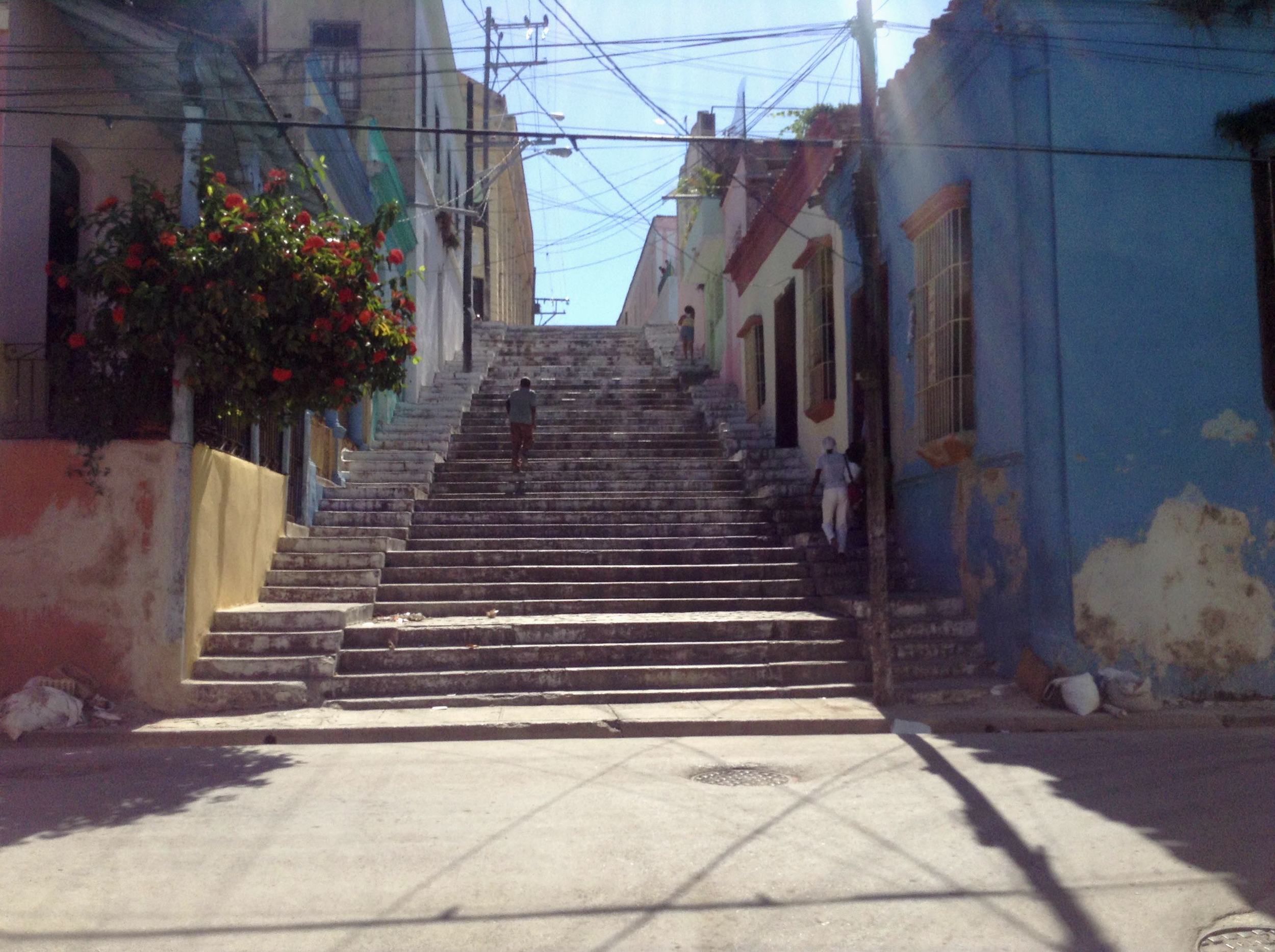



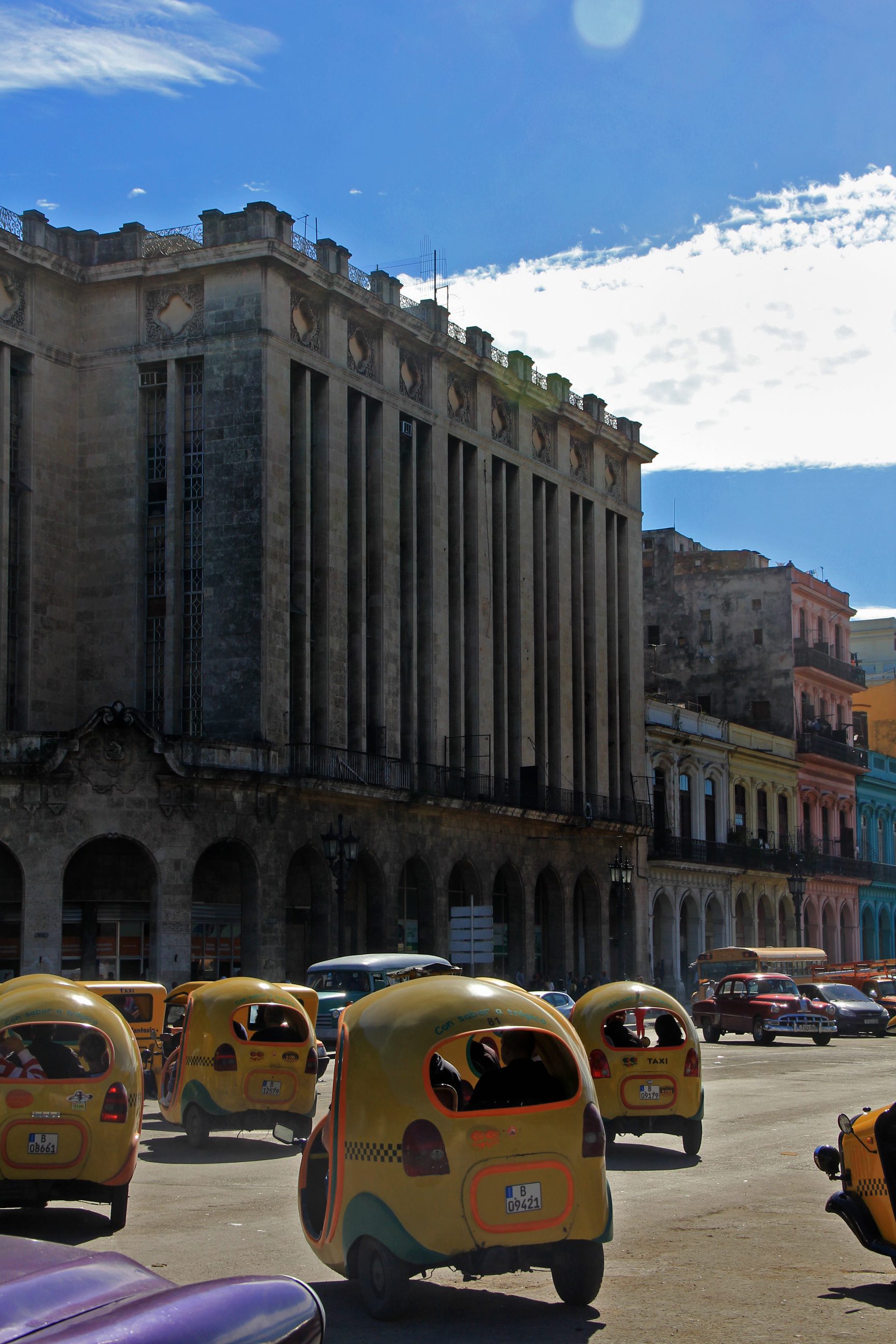

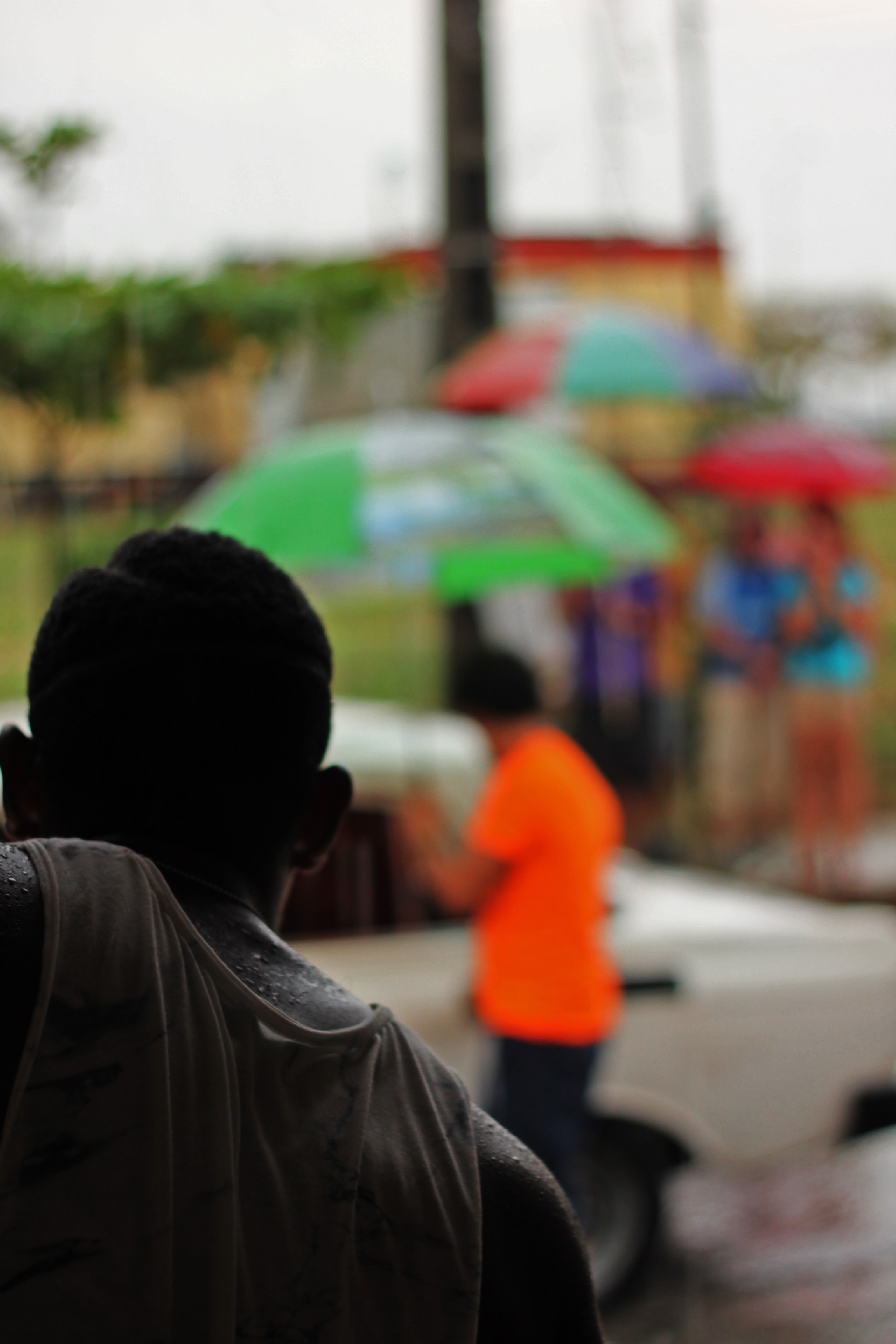
PHOTOGRAPHS BY JORDAN HAMILTON
Did the Black community there feel different from the Black community you experienced in the U.S.?
The setting was different but there were a lot of similarities I think with the "feeling". We went to one of the artist studios, and they lived in this small shack with at least a couple of family members. In the studio they had this sound booth set up, it was just like something I've seen here, like in Ken (DJ JUST NINE) and Greg's (Greg Grease) basement! The vibe was similar! We were just kicking it... I was drawing, they were writing raps and songs and we were vibing out together! Then we went with Ray, the person who's house we were at, to a guy in the next neighborhood to get our hair cut... That reminded me of here (home).
What did you feel about the differences with the way artists lived in Cuba vs the way artists live in Minneapolis?
I think I noticed it a lot around the use of space. They were able to utilize often a smaller space, like in the studio. It was amazing how many people we crammed in there and were all able to work cohesively and do our thing together. Also access to the internet being pretty limited yet they are able to share and distribute new music, new media... It was cool to see how they were able to flip it. People still have their own fresh, unique, style... Like in Santiago there's that presence Black Excellence and there are the similarities to what we have here but then it's uniquely Cuban and Caribbean.
What changed about you after you went to Cuba with USCAE?
When I got home I felt like "my house is humongous! I have so much space!". I came back with this desire to better utilize and share living space more cooperatively and collectively.
Was it hard to come back?
It was REALLY difficult to come back. We came back in the middle of the winter. I had that same craving for being around community and people, but it is kinda the opposite here in the winter. Everybody is hibernating. I went into this deep hibernation and isolation..it was kinda tough.
Anything else you want to mention about your experience?
I was also inspired by a few individuals that I met there in terms of their entrepreneurship. That sparked something in me and inspired me to just be on it more and realize the infinite potential that we have. Especially with having access to more tools here. Yunior (Havana) was making all his leather work and shoes, clothing, bags.. making whatever he felt he needed.That’s something I've been wanting to do more with my work. Seeing a need and then fulfilling that need for your community. Making things that are functional and can be used..and you don't have to go through a corporate business or entity to acquire that, you can make things yourself! That was a great reminder of that value...
SEE MORE OF JORDAN'S WORK HERE : JORDAN'S WEBSITE
